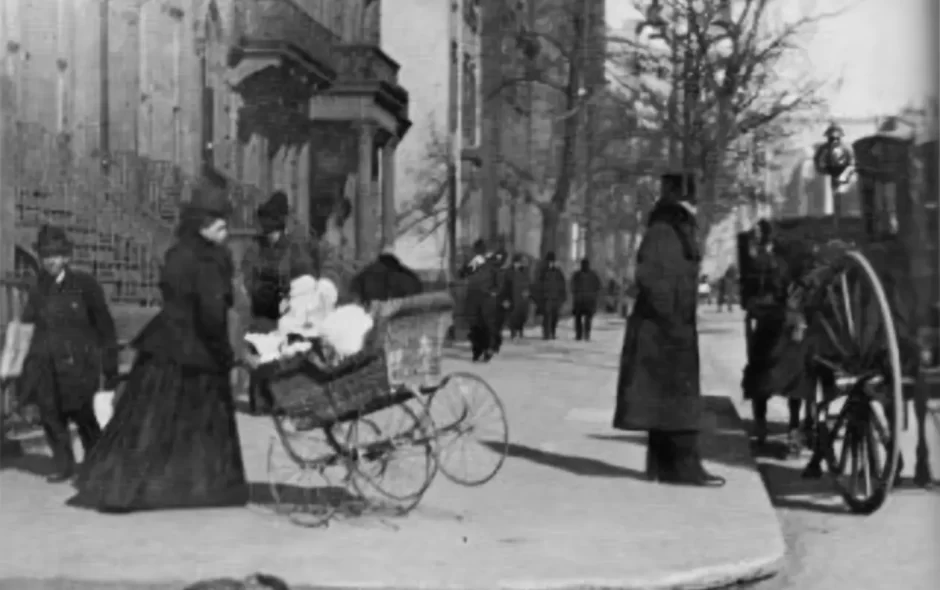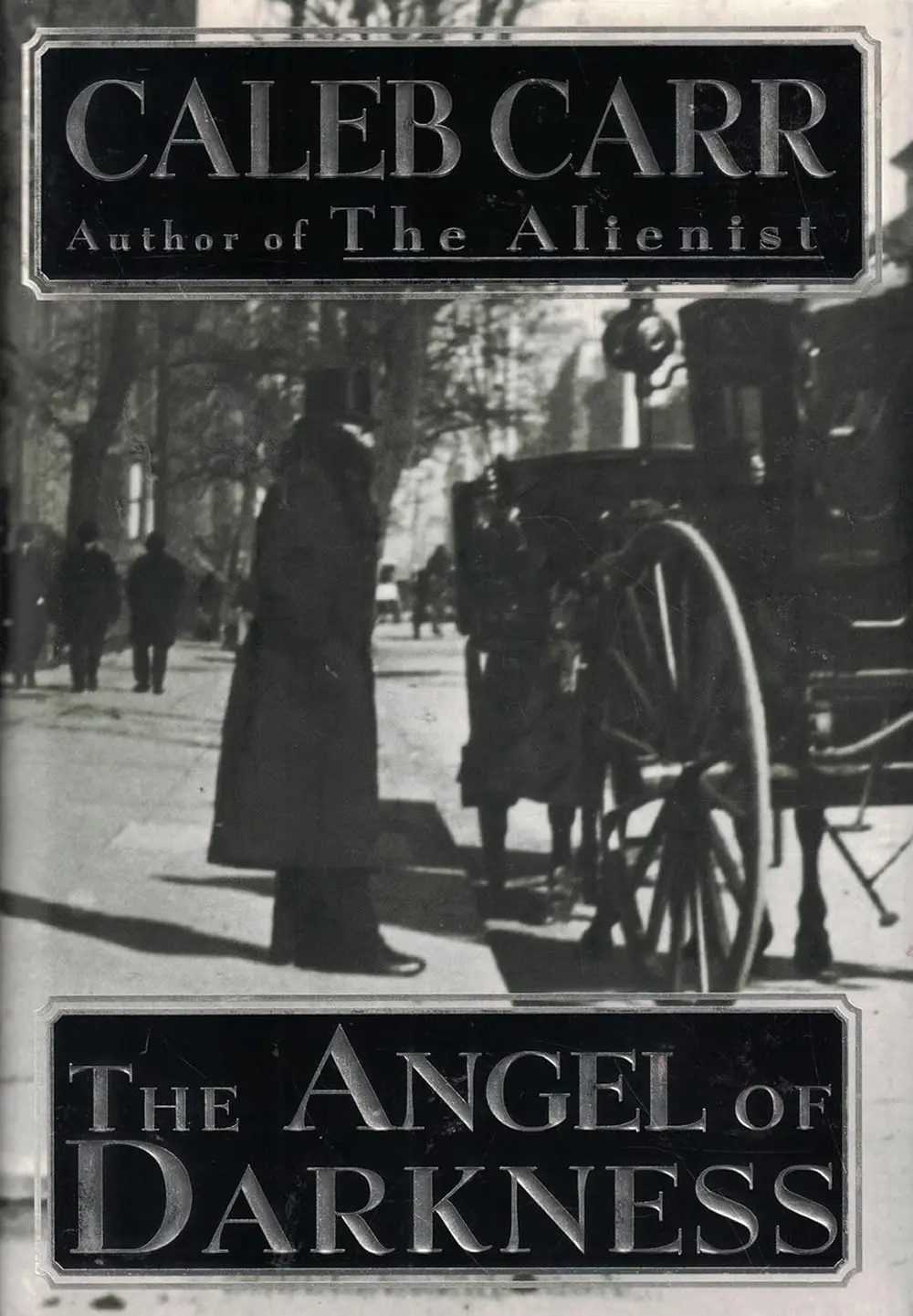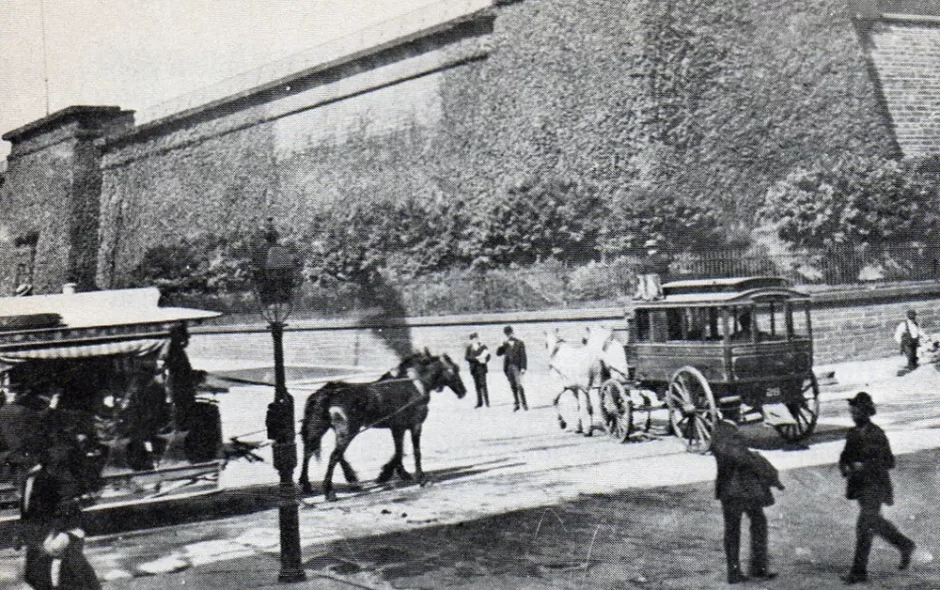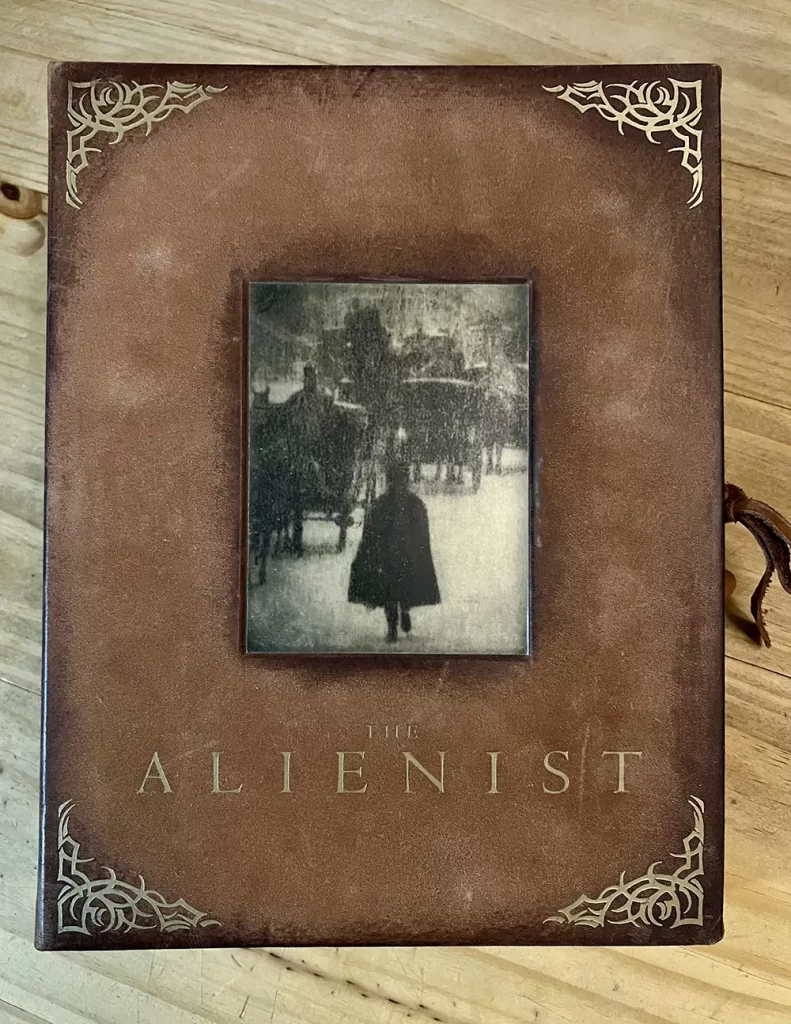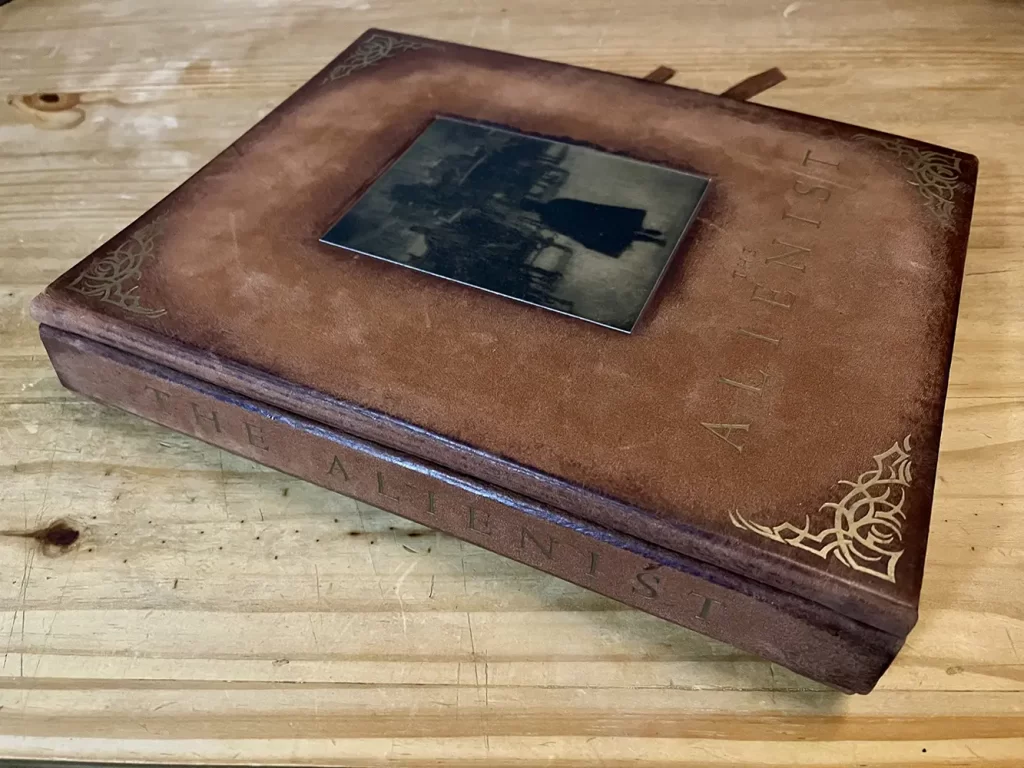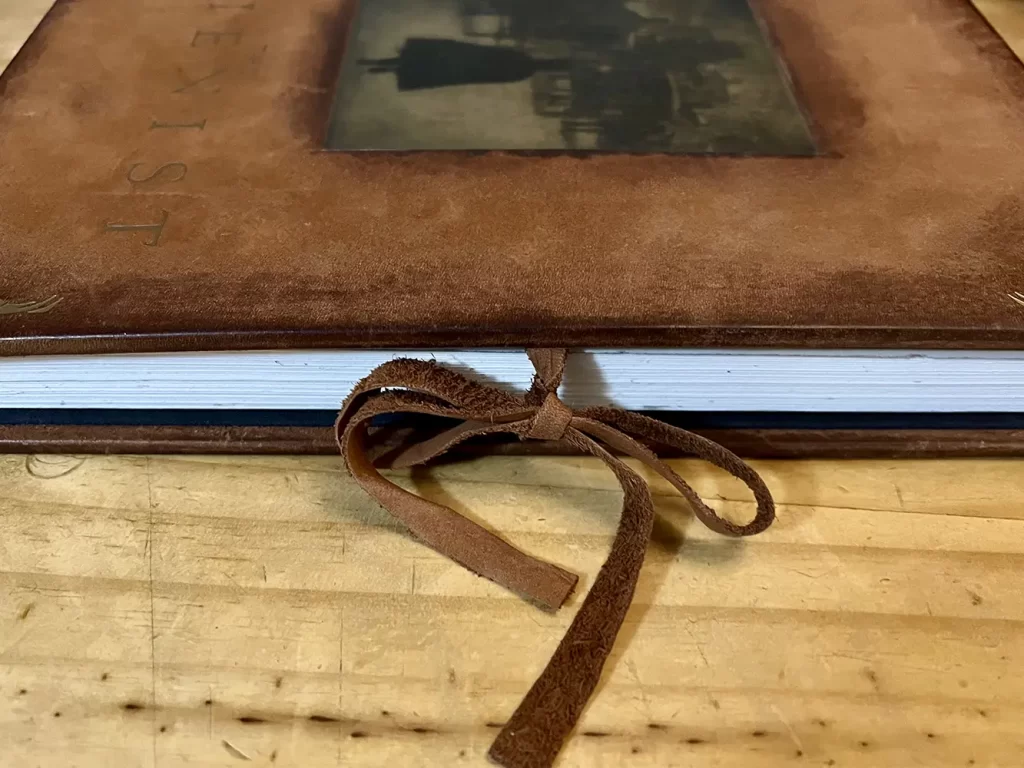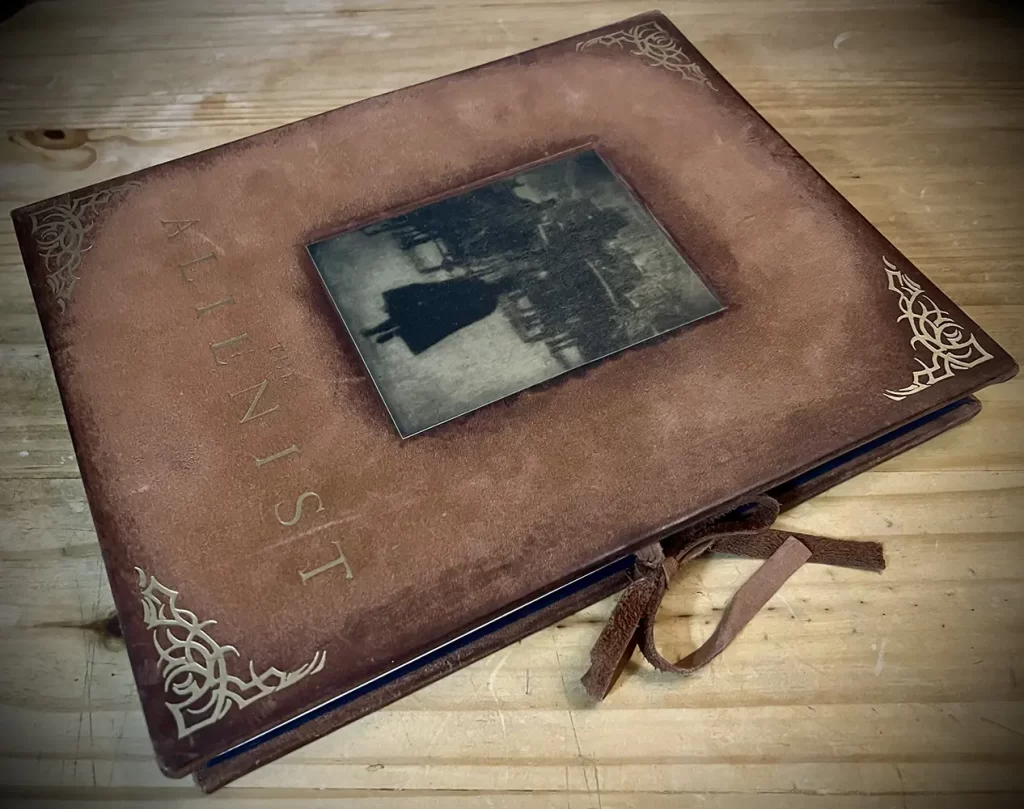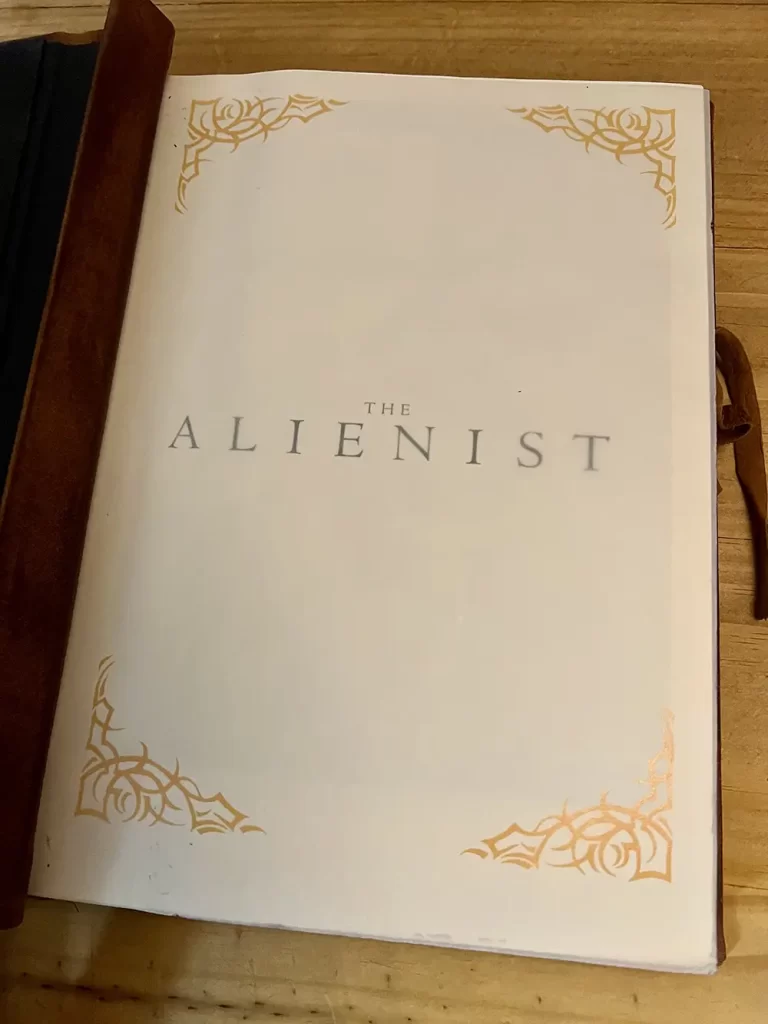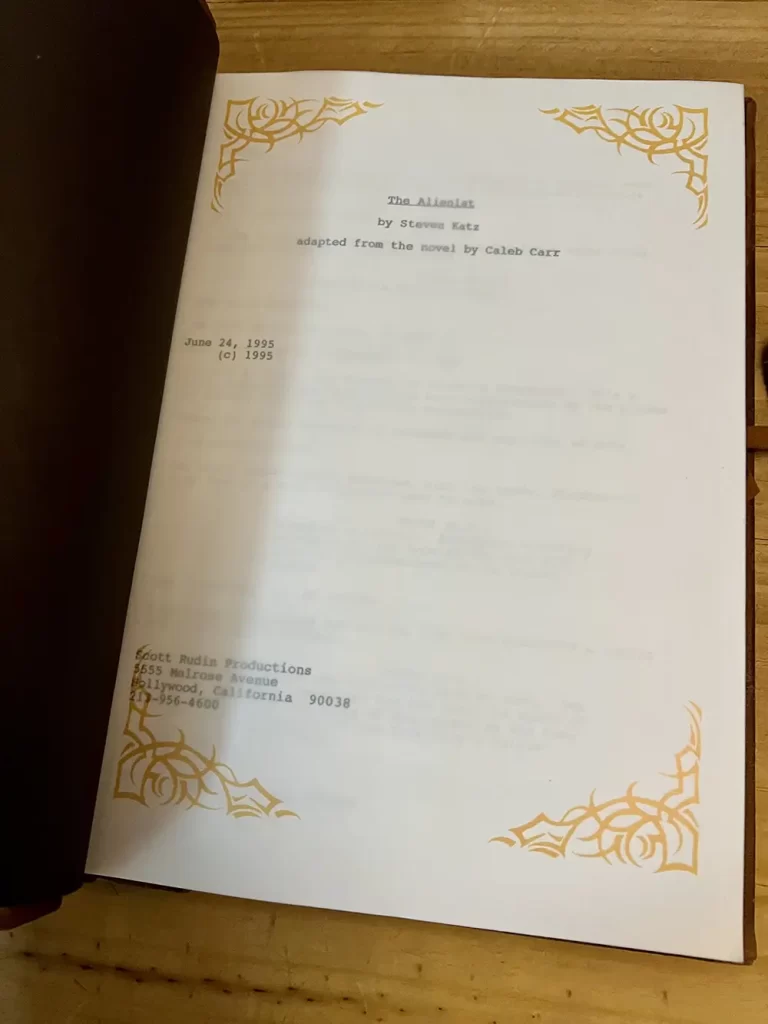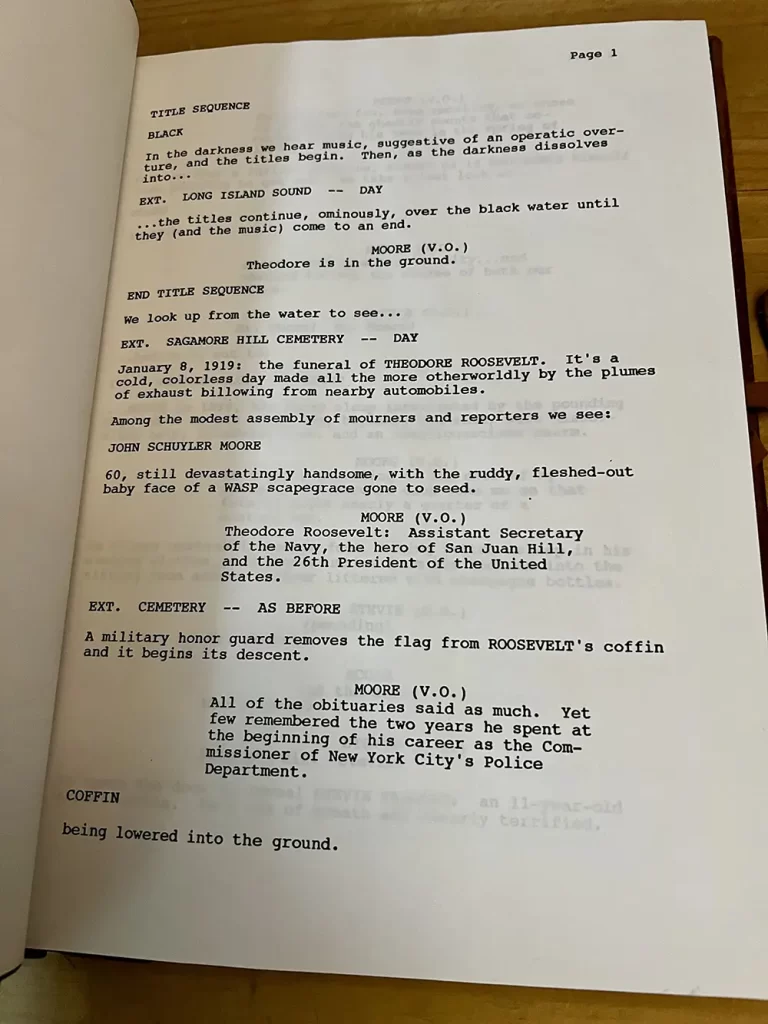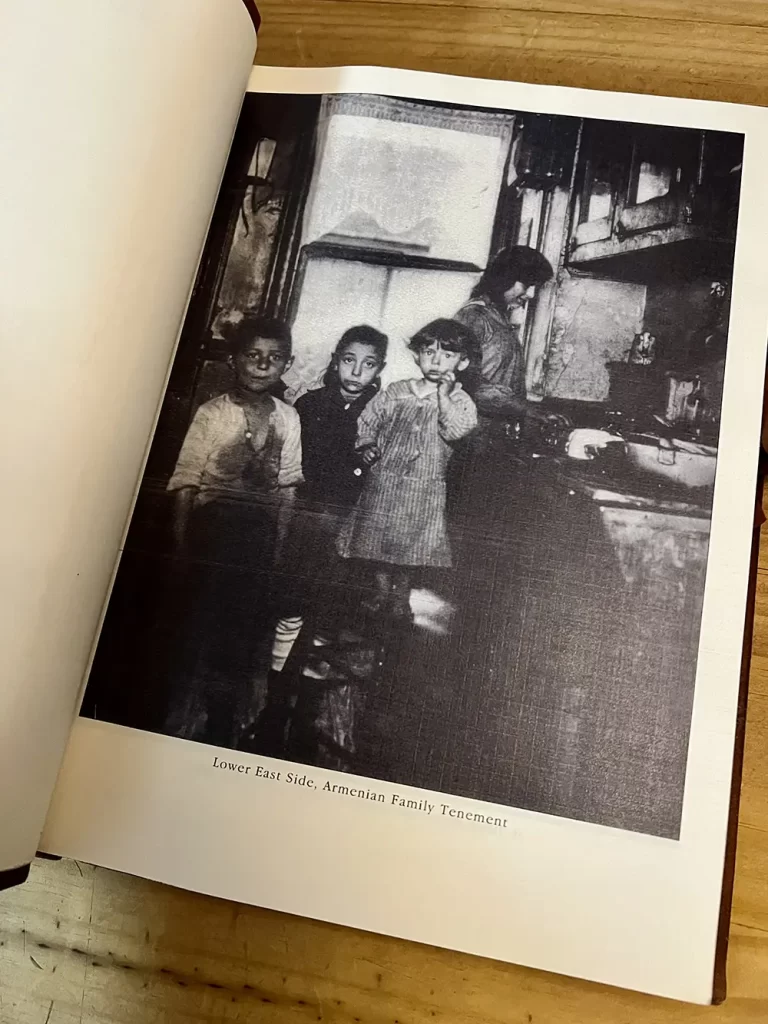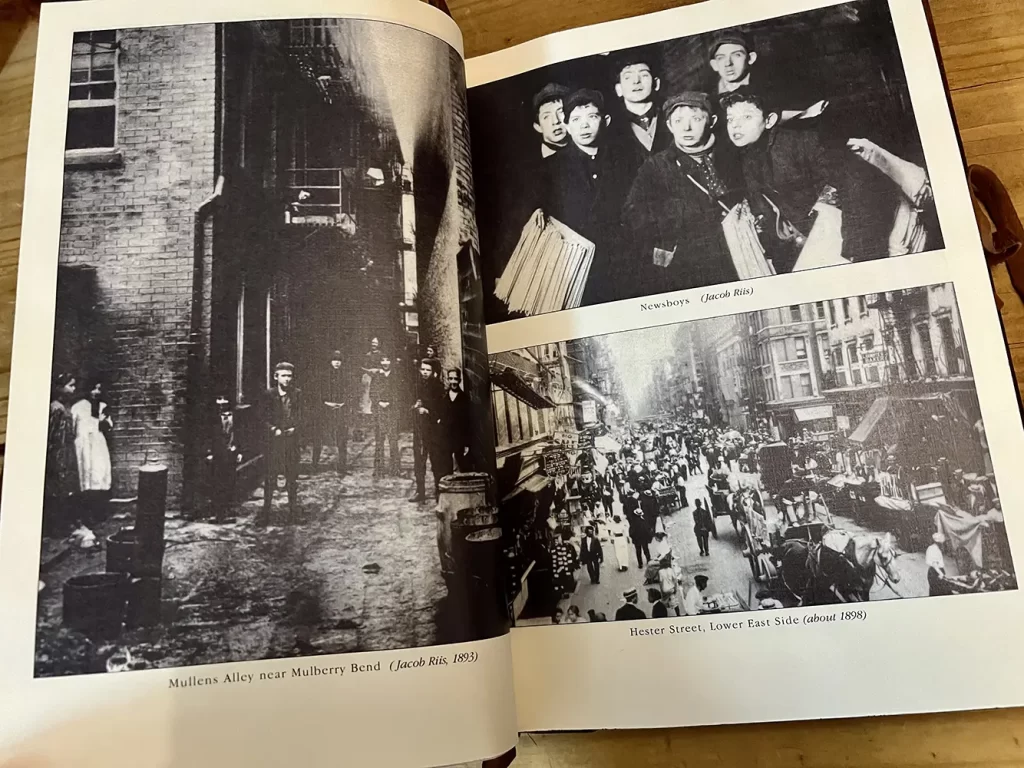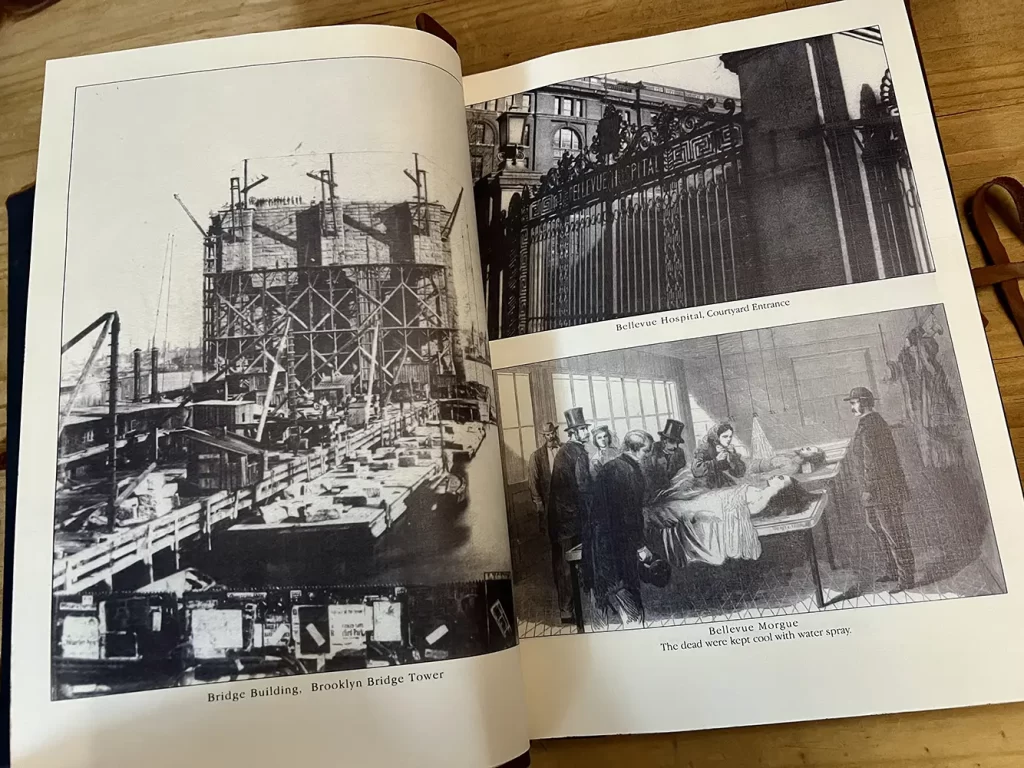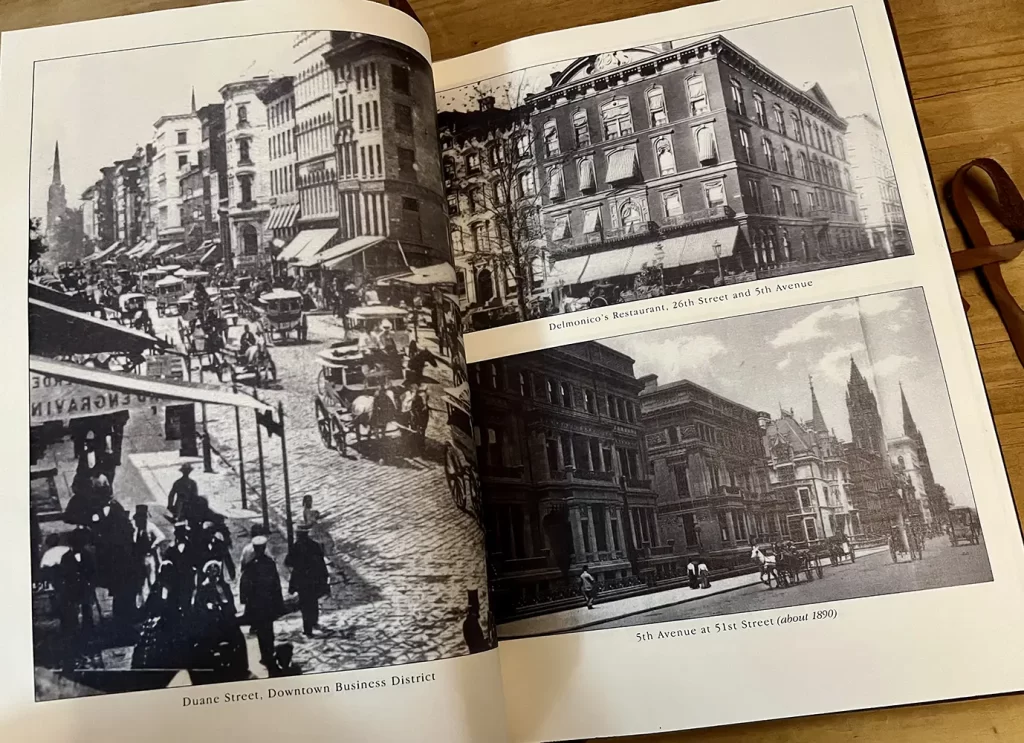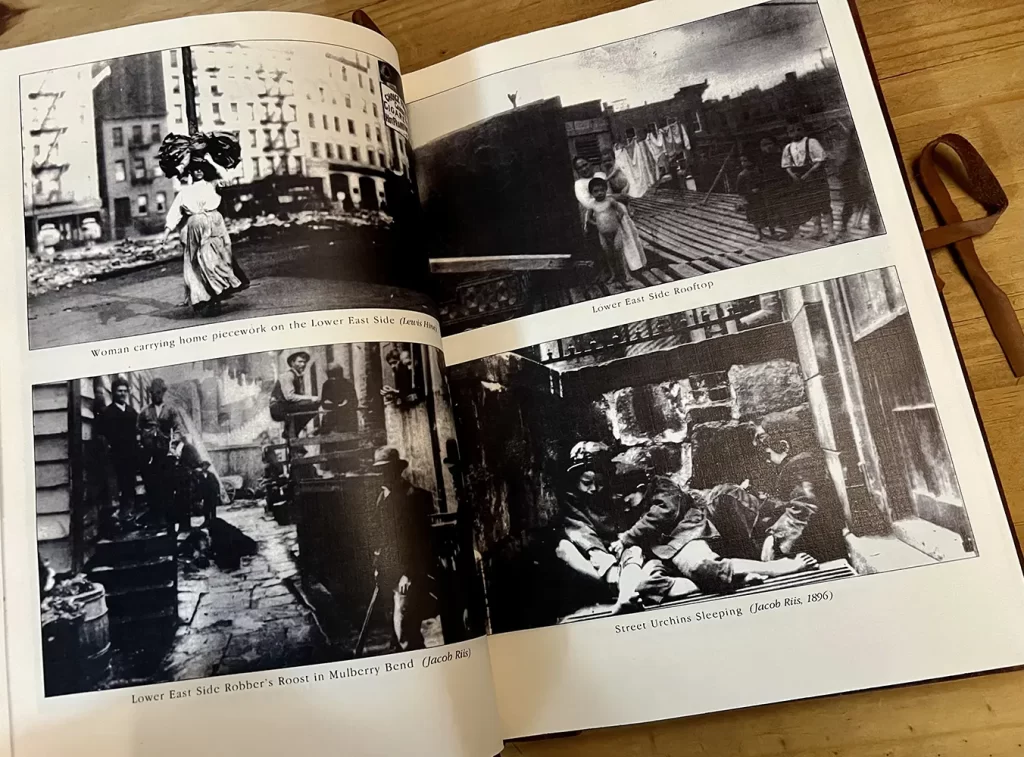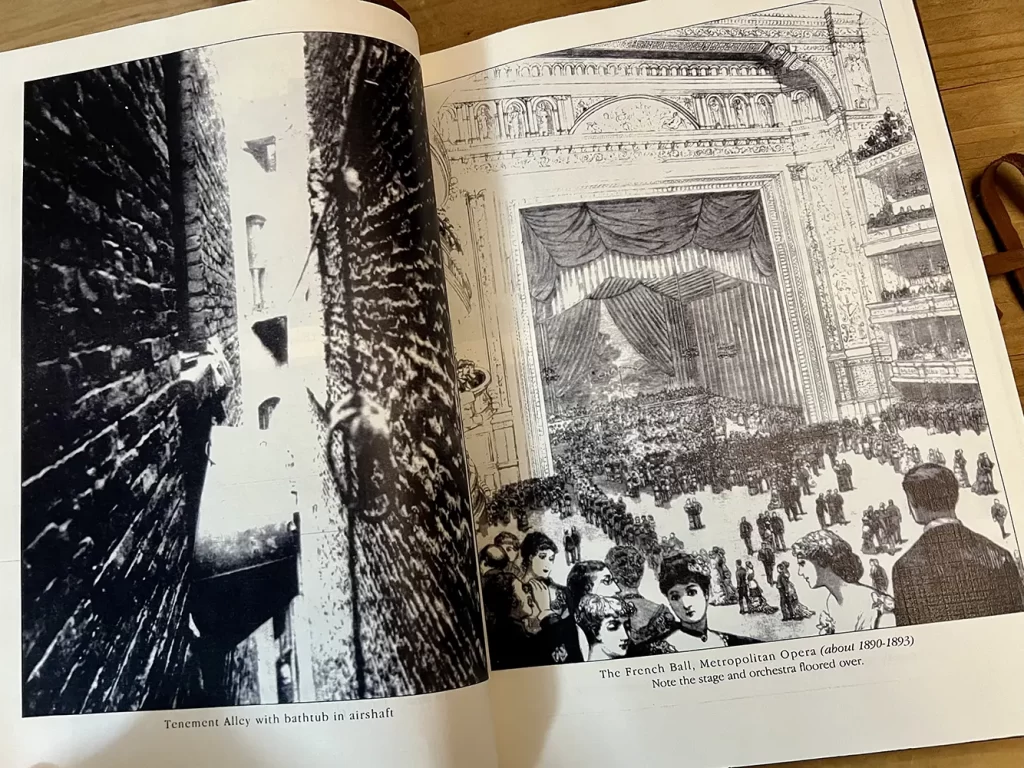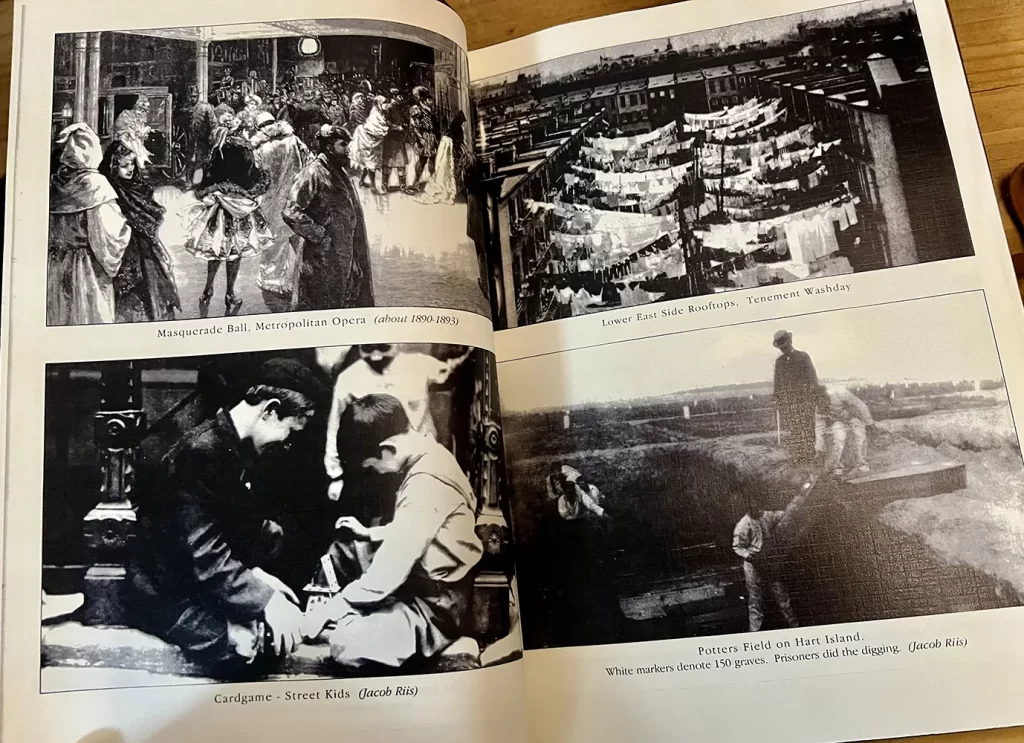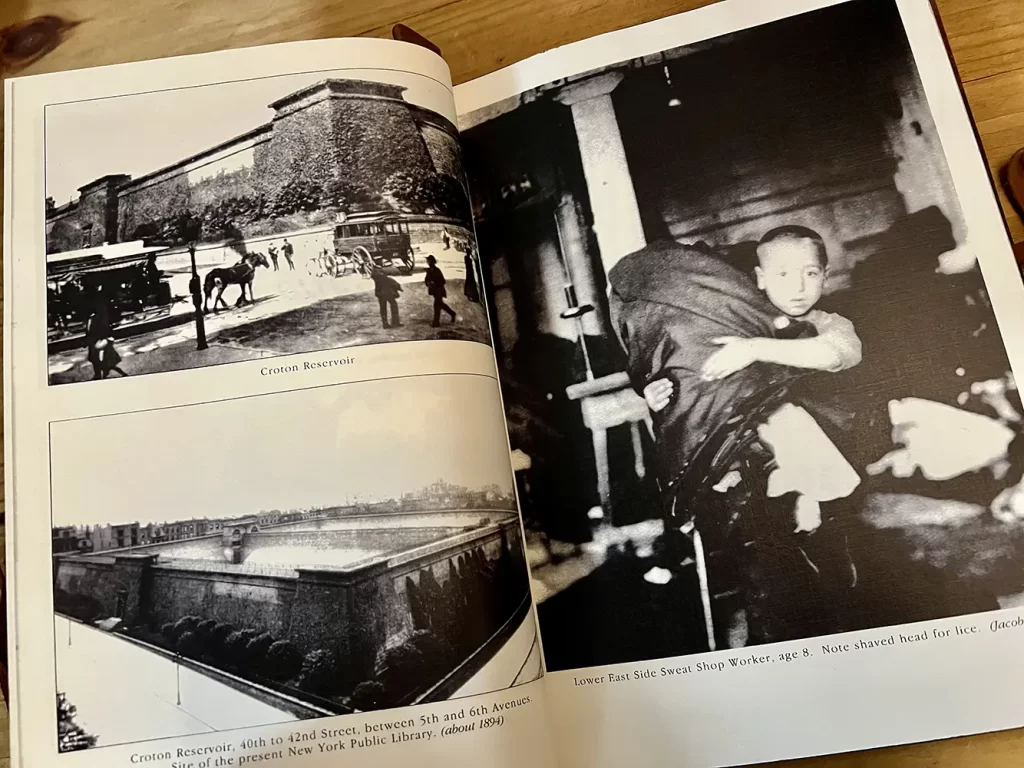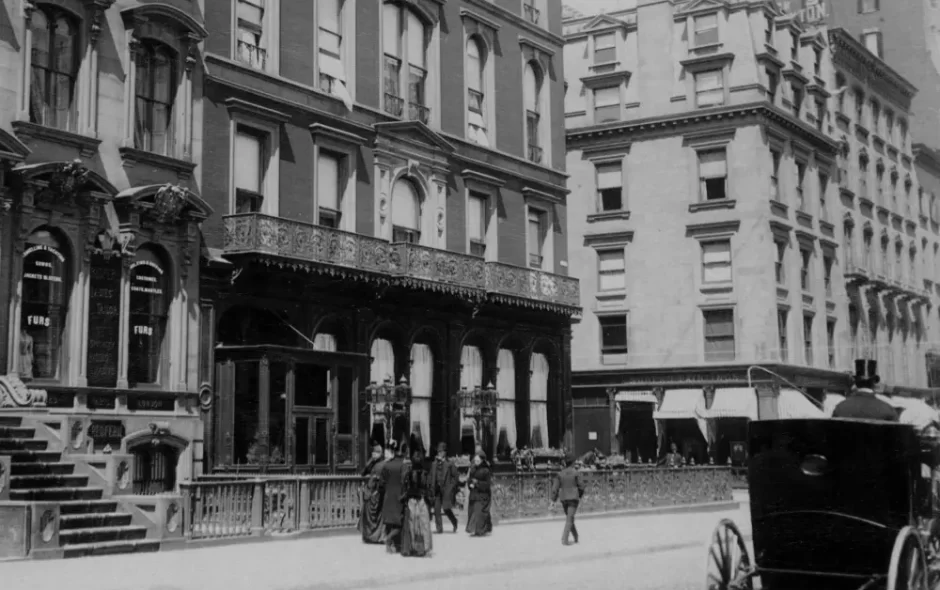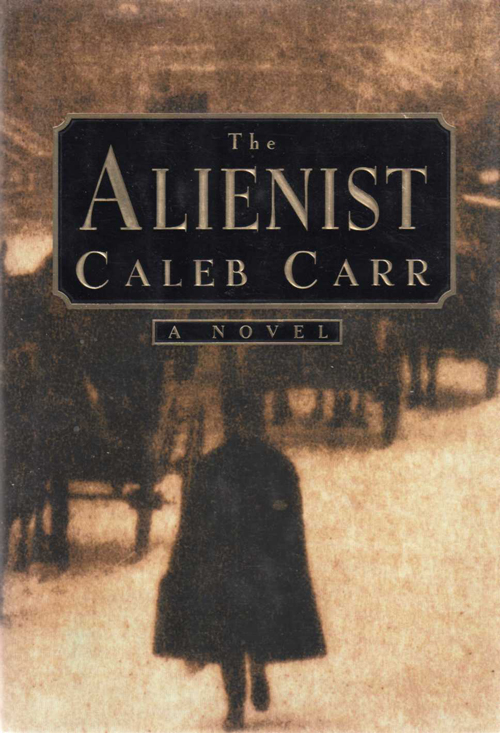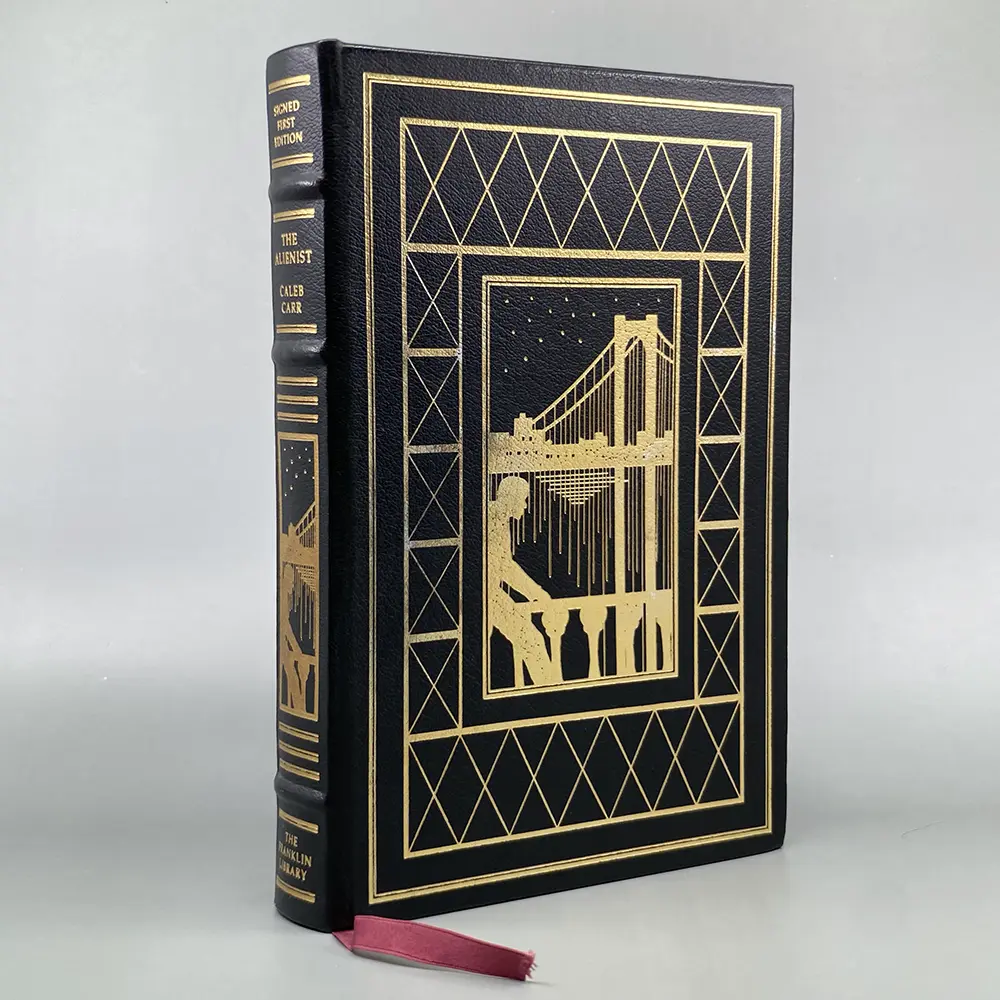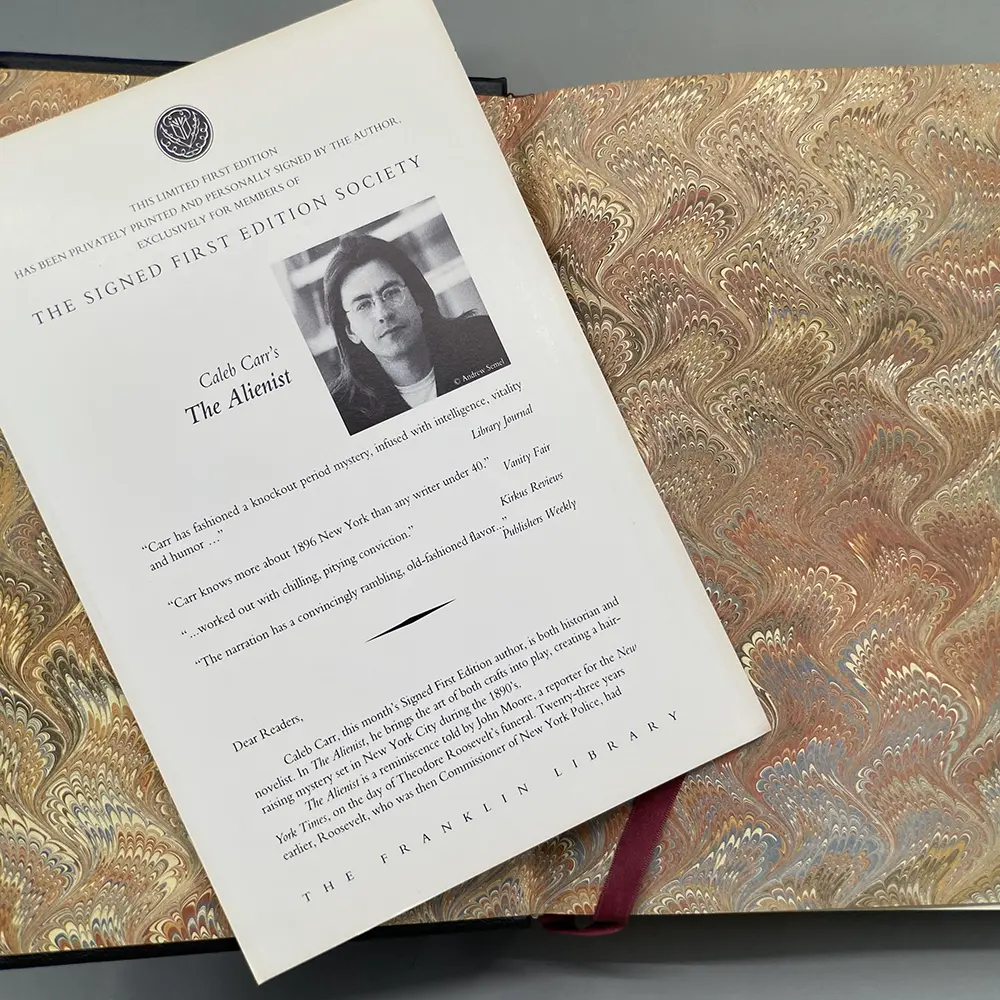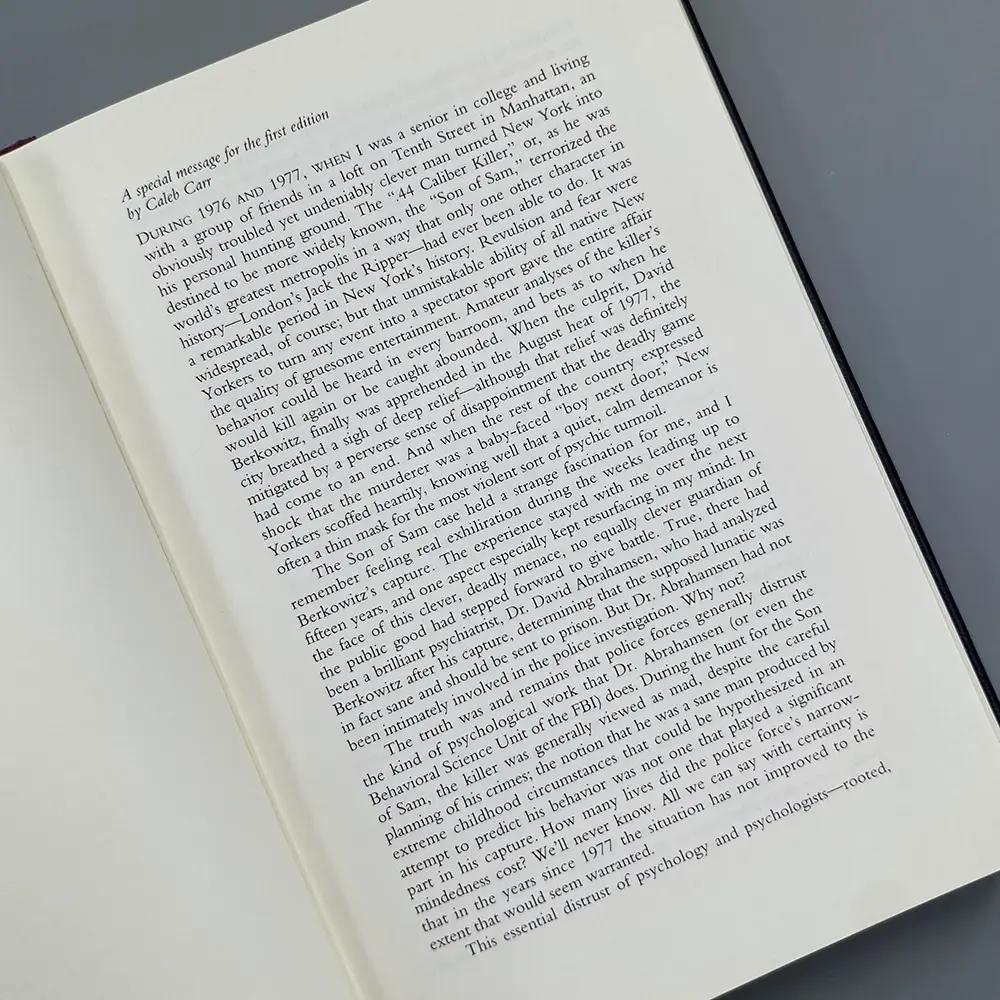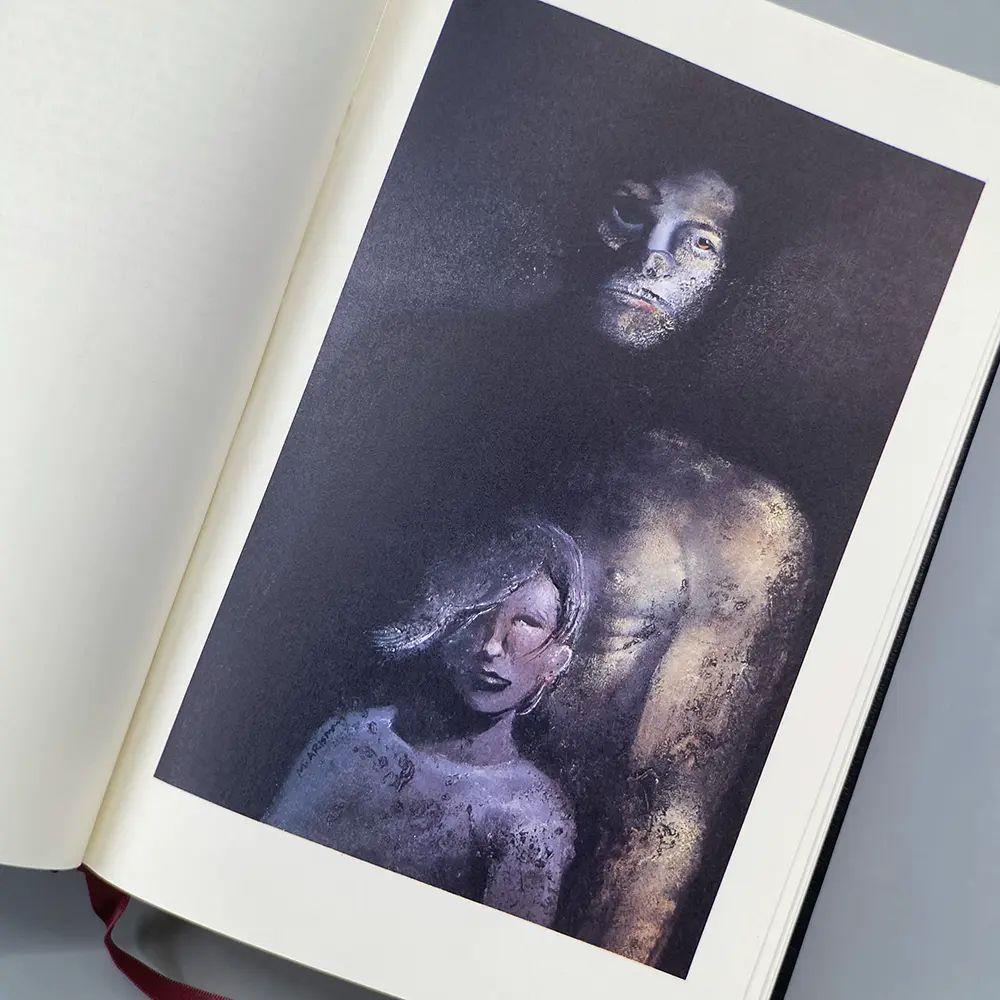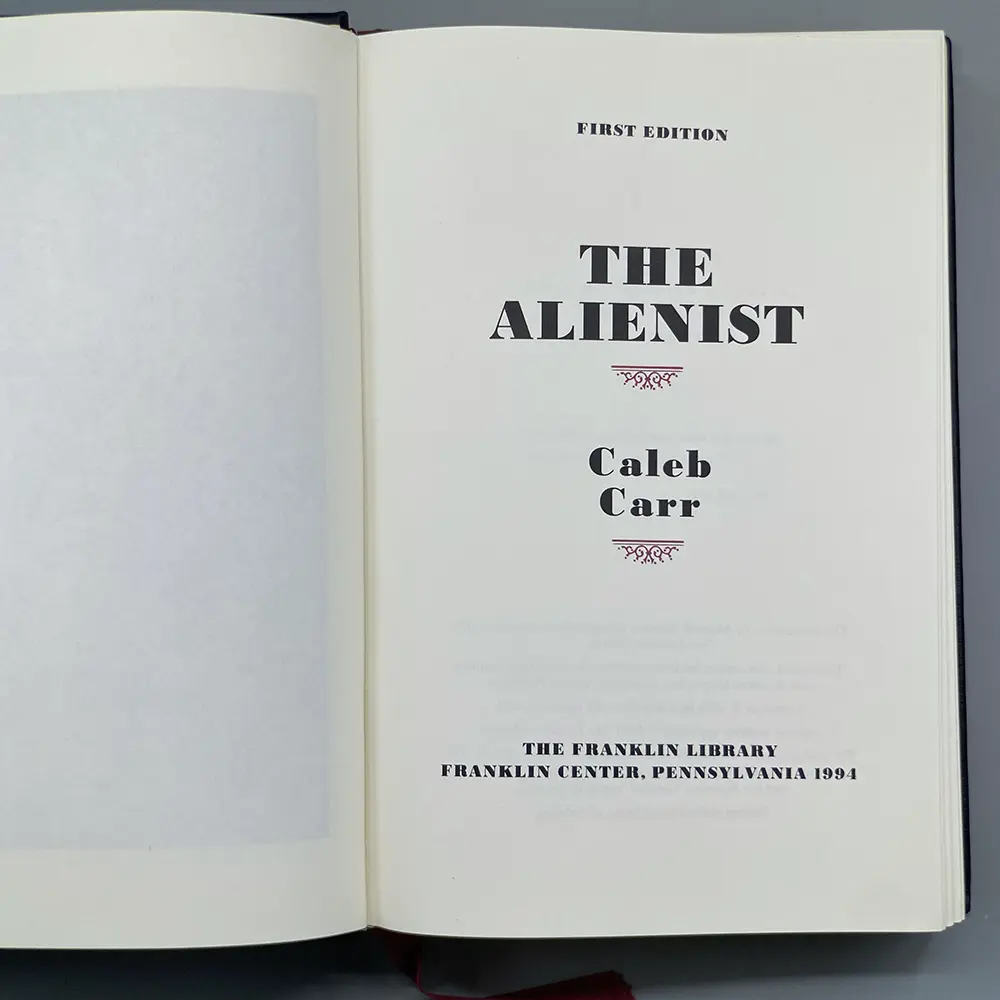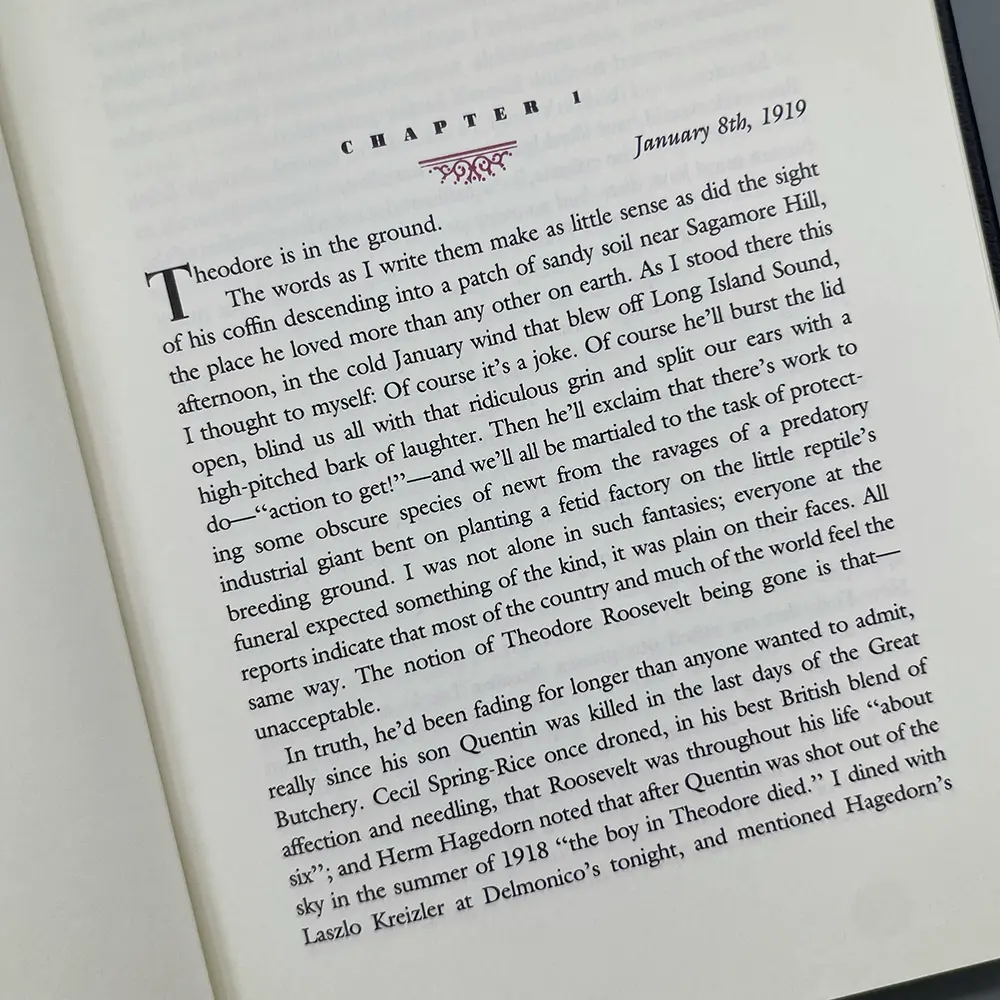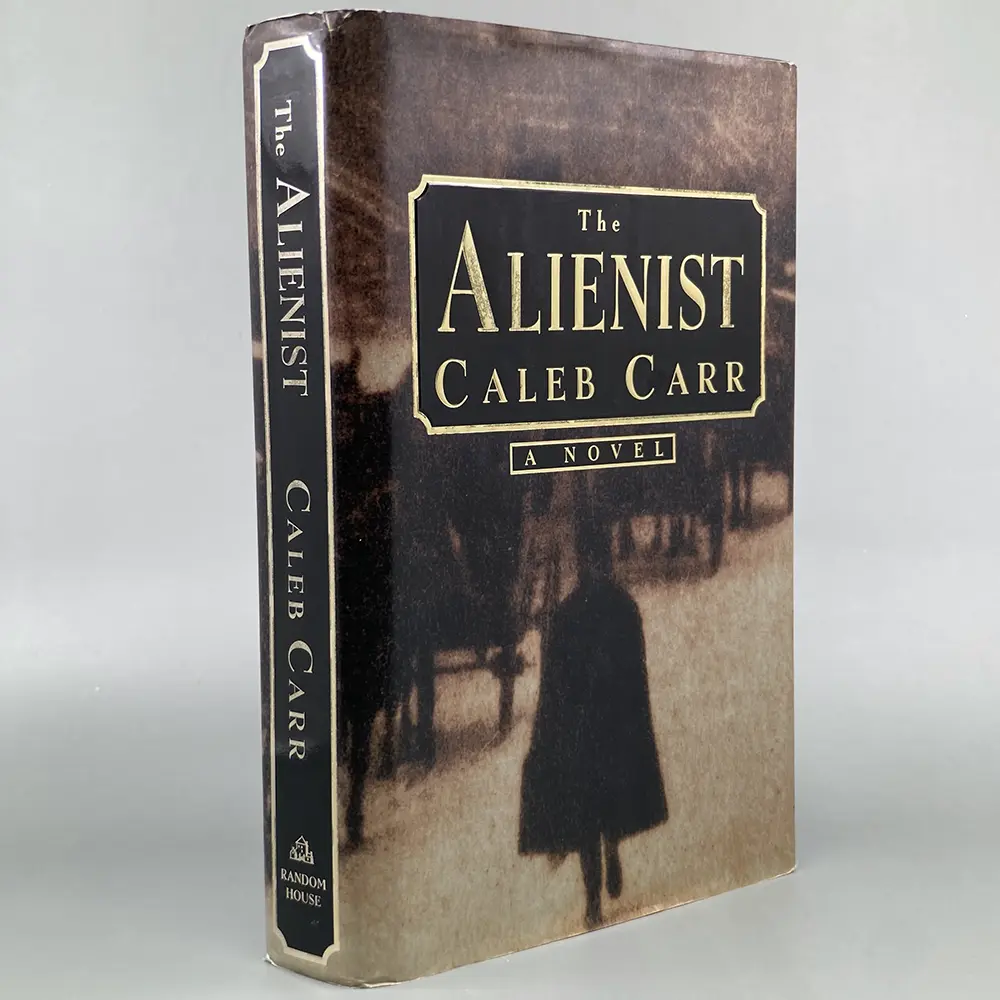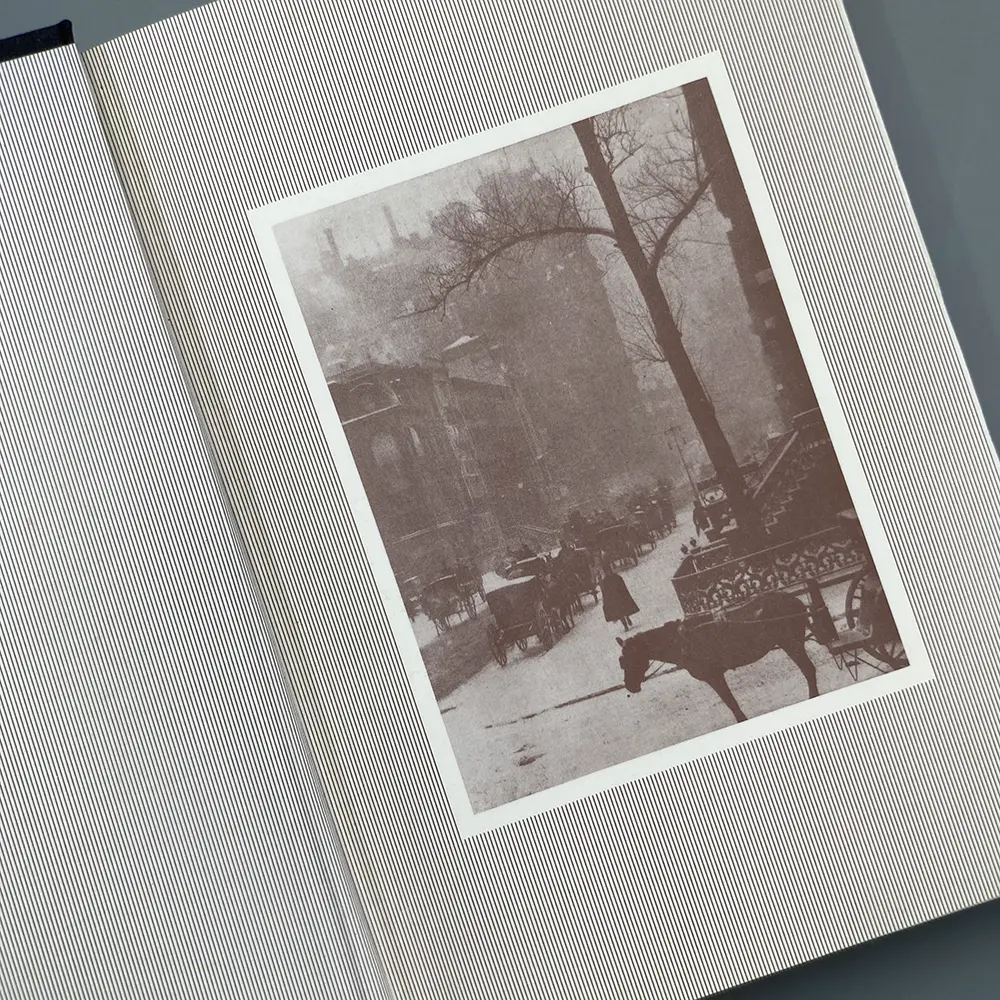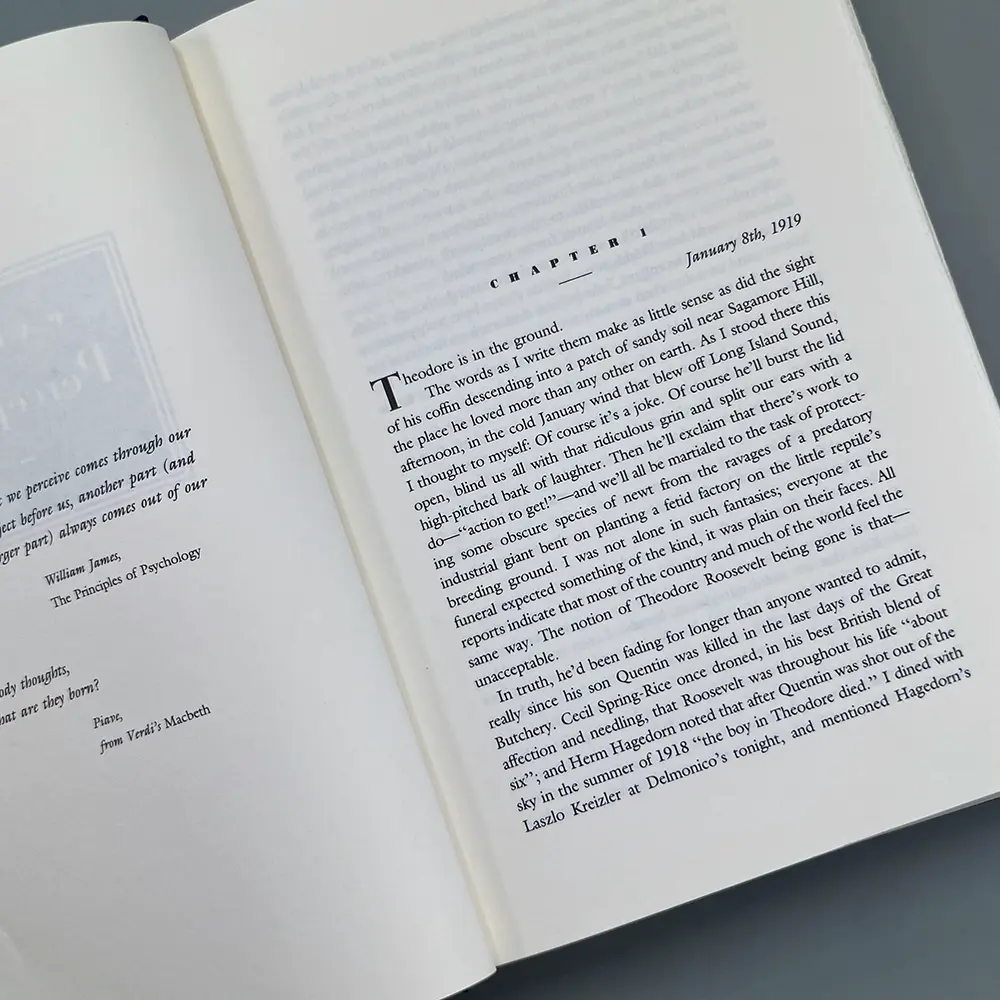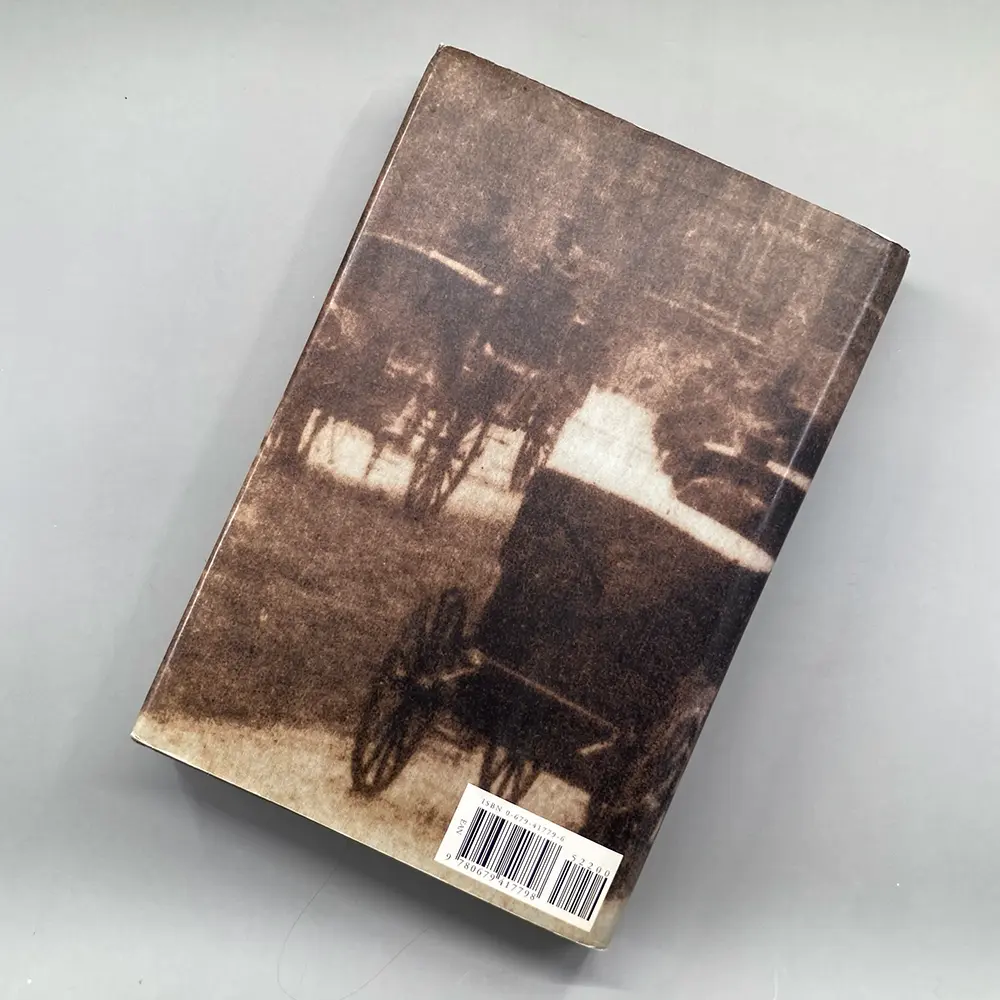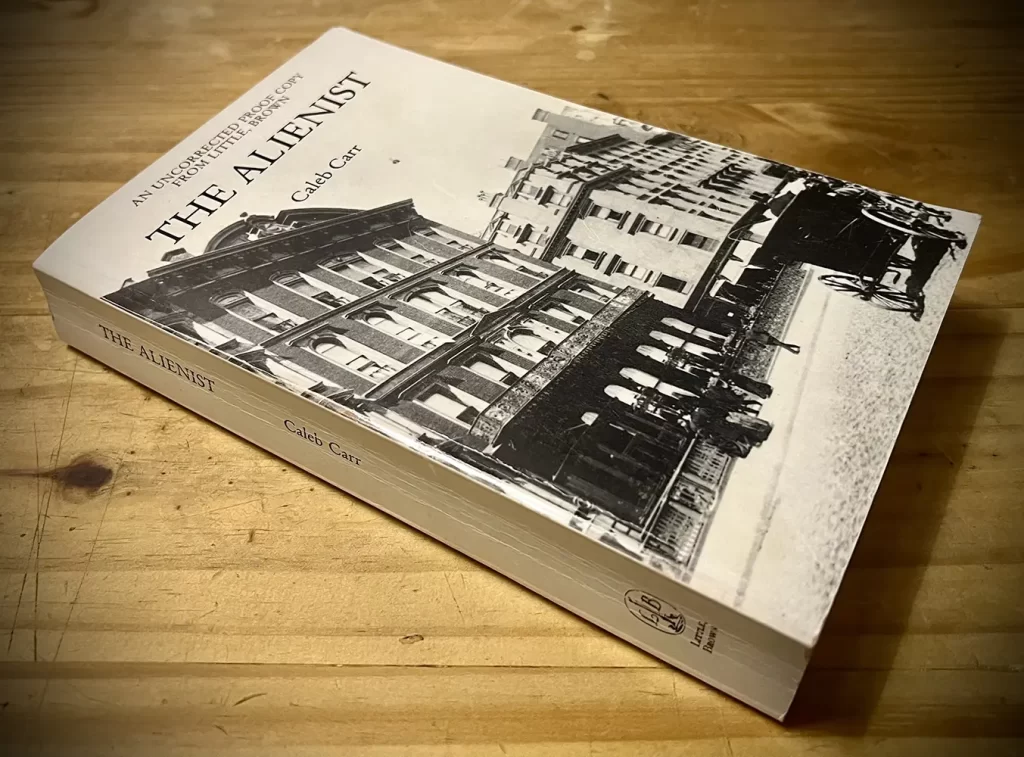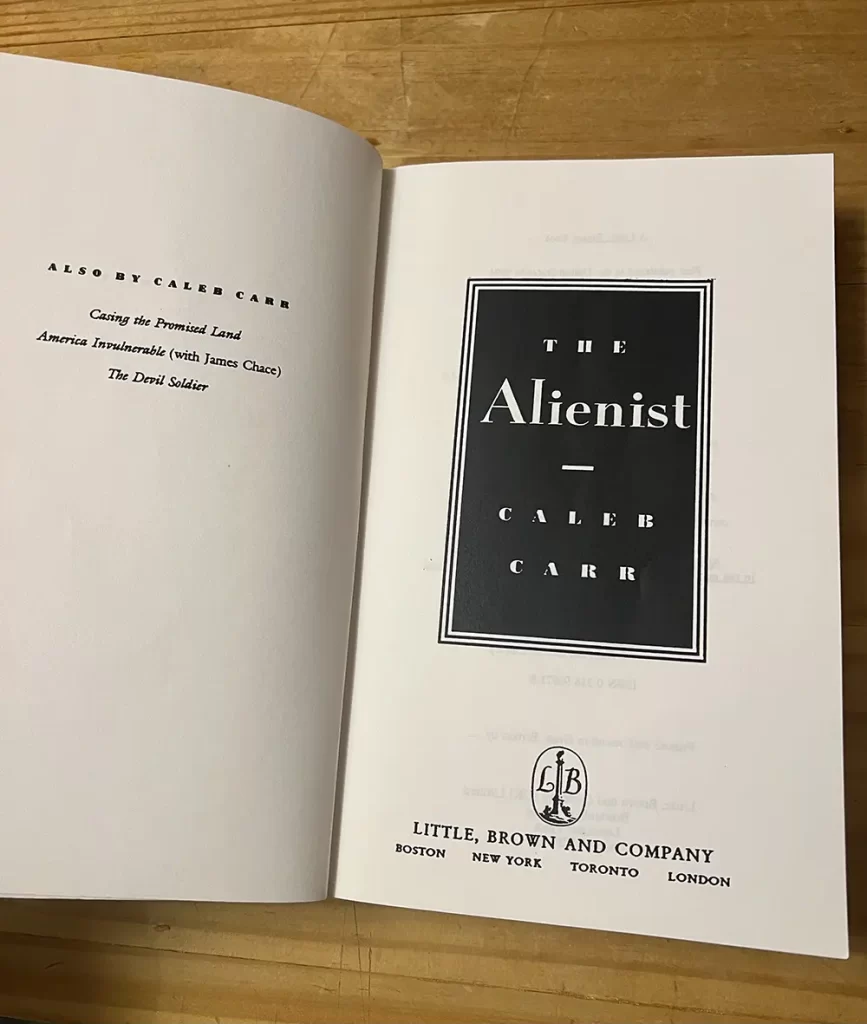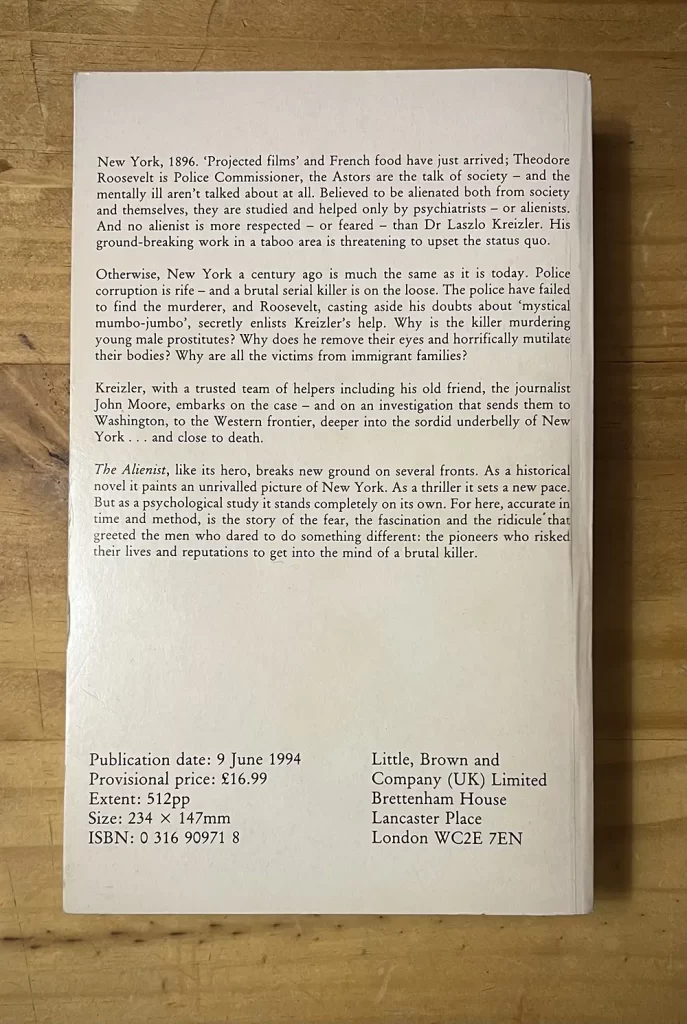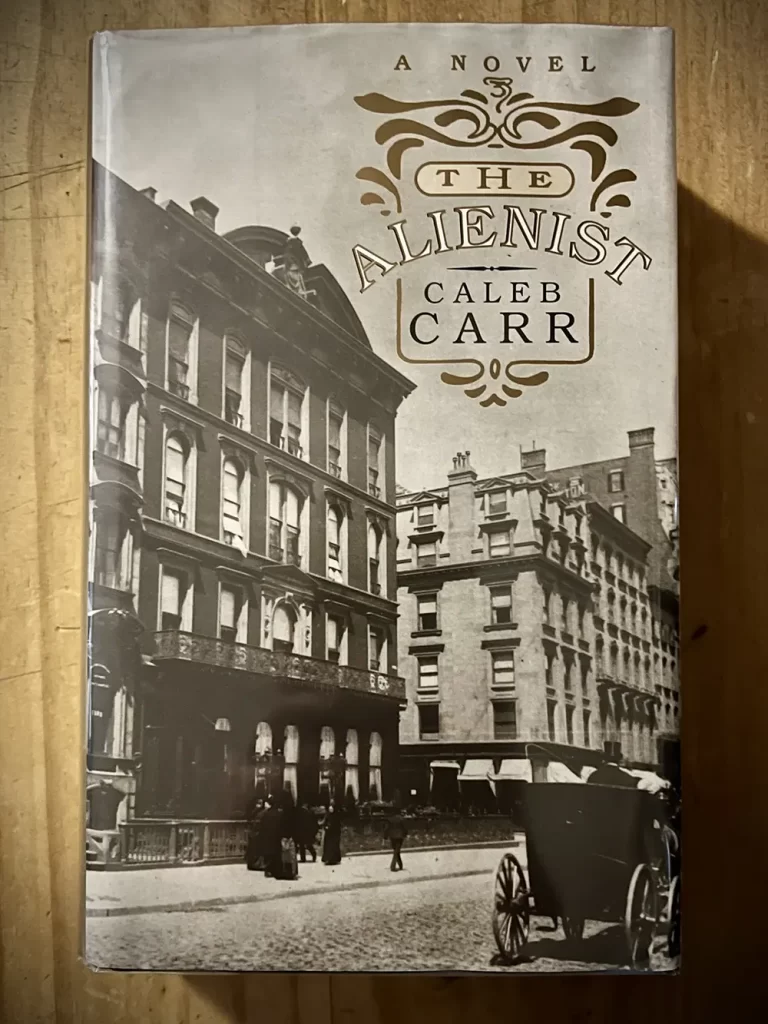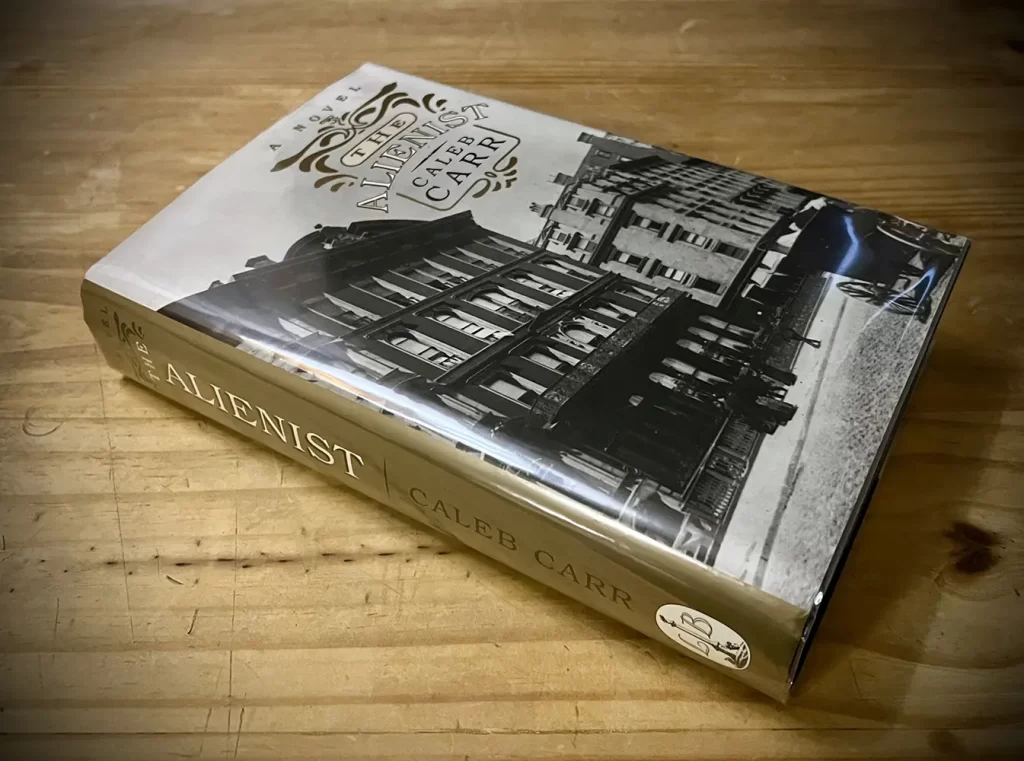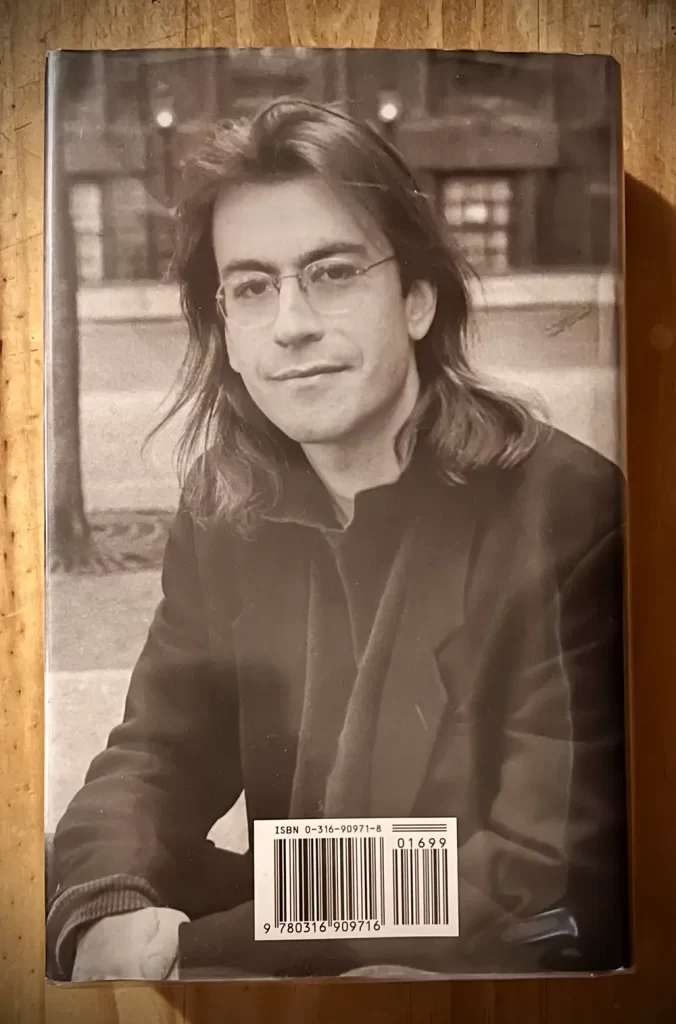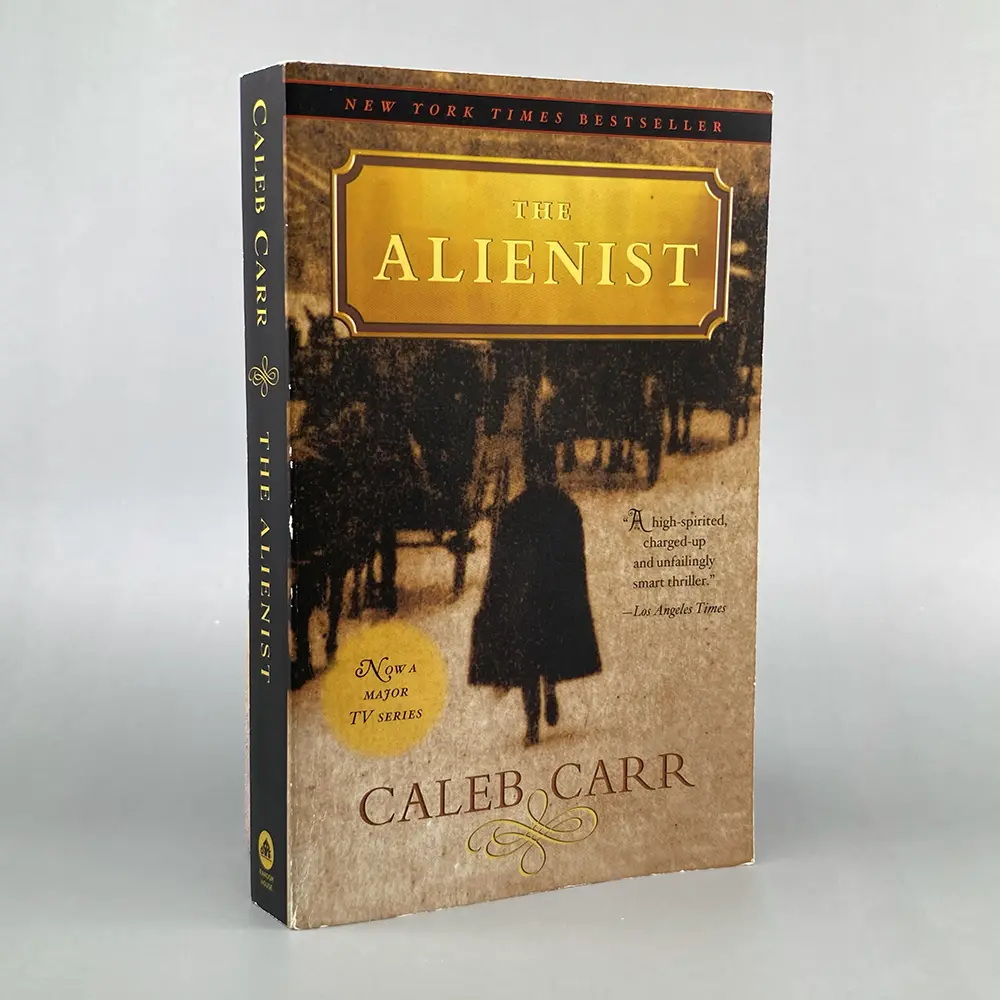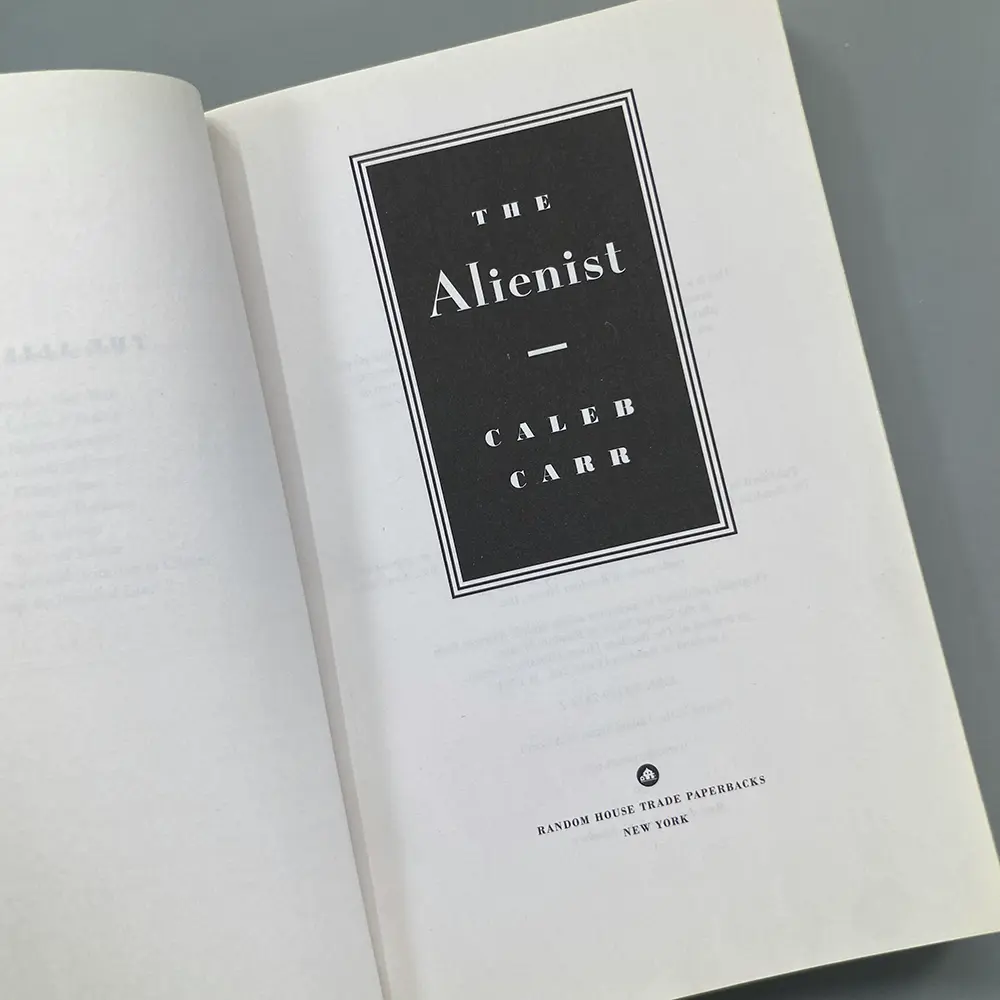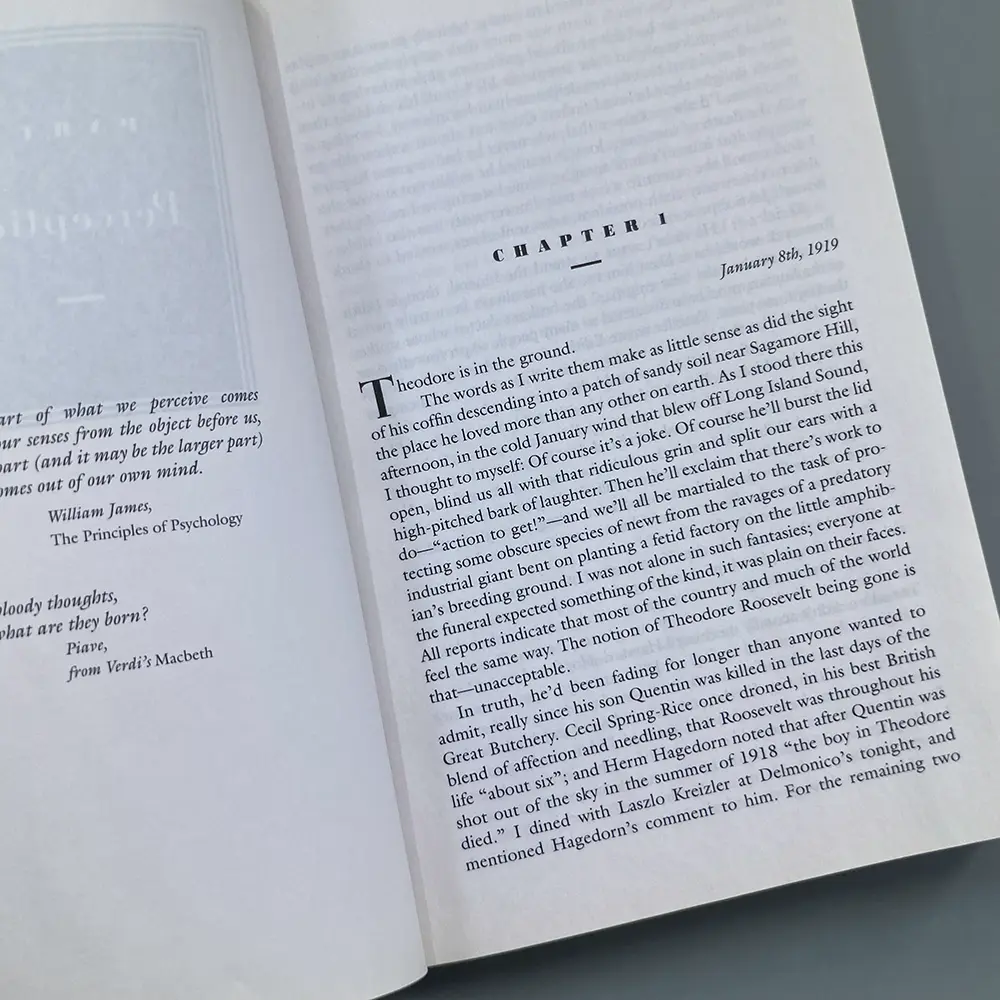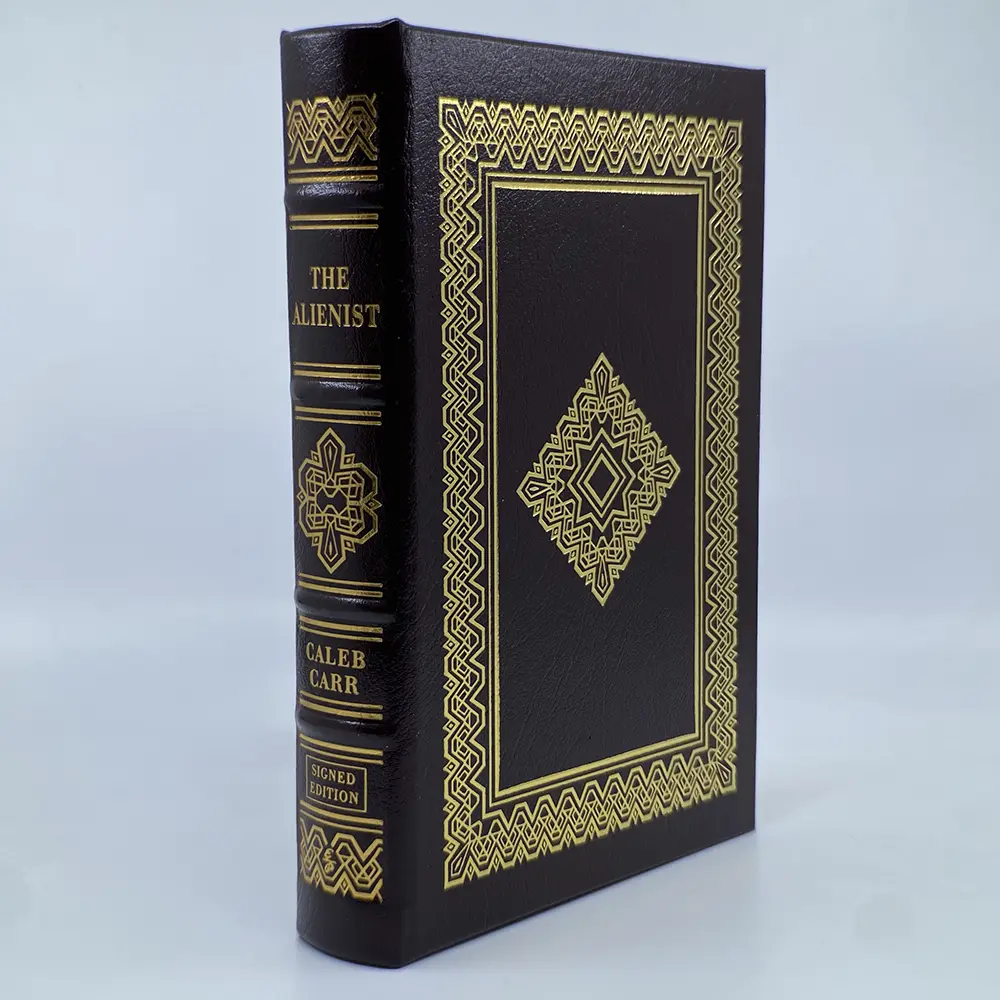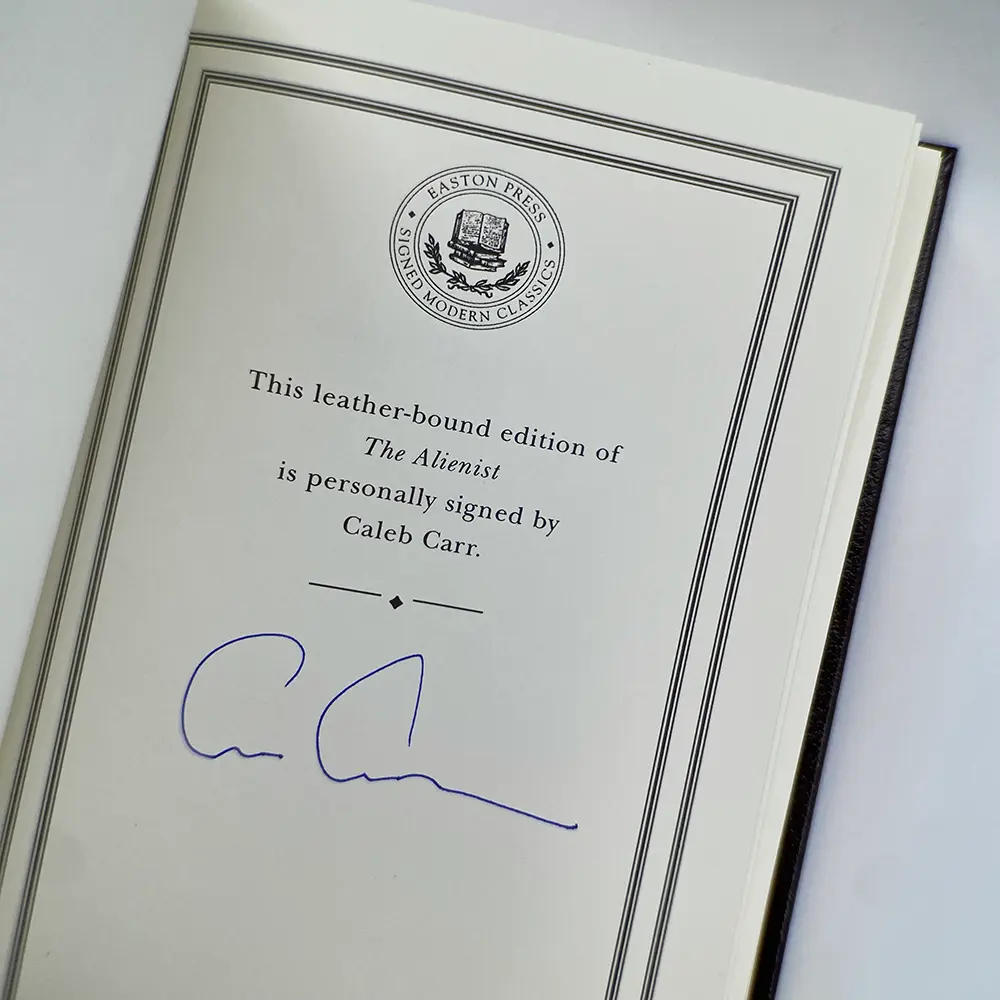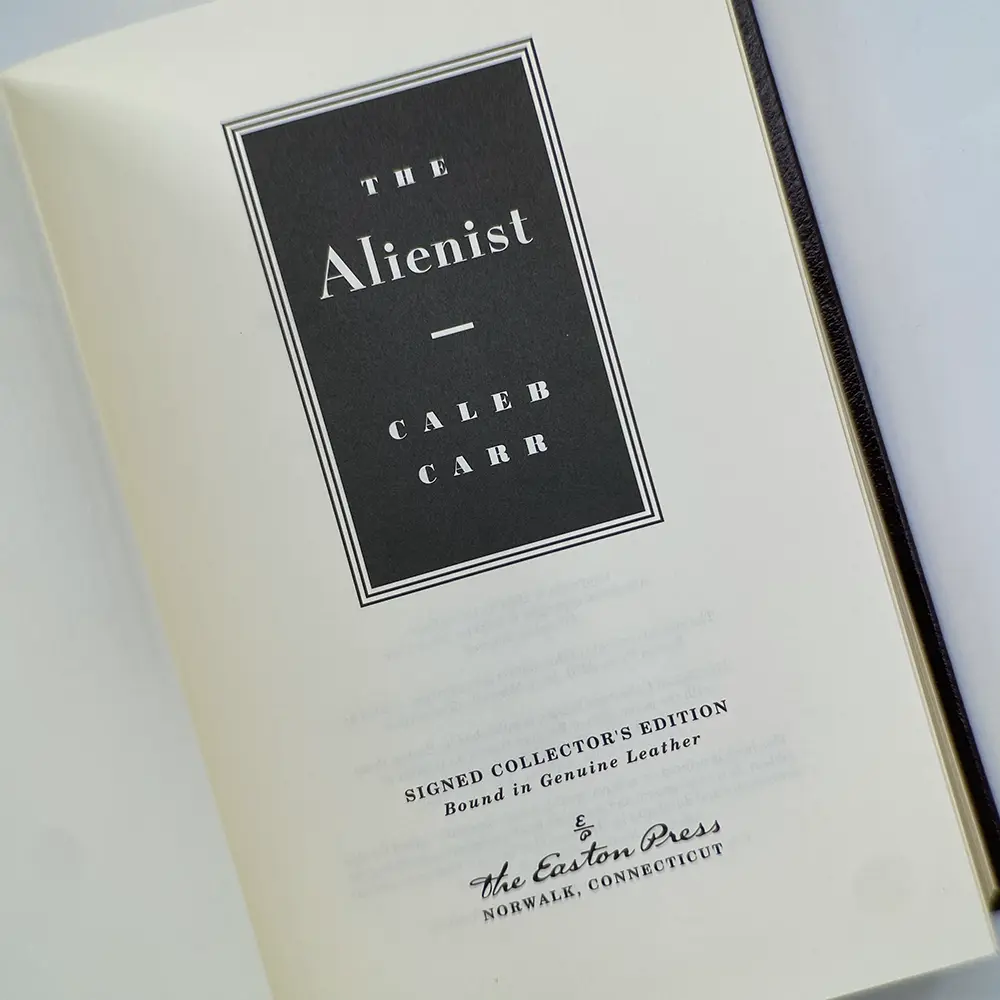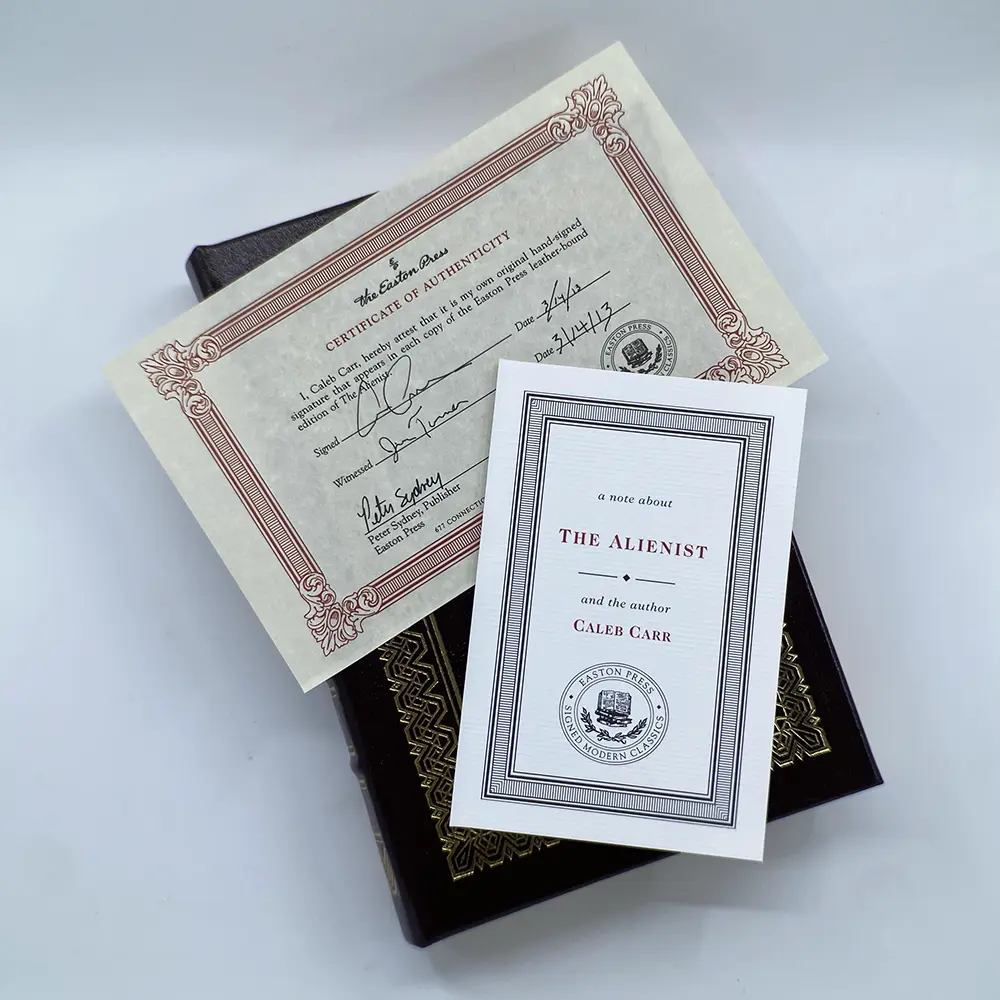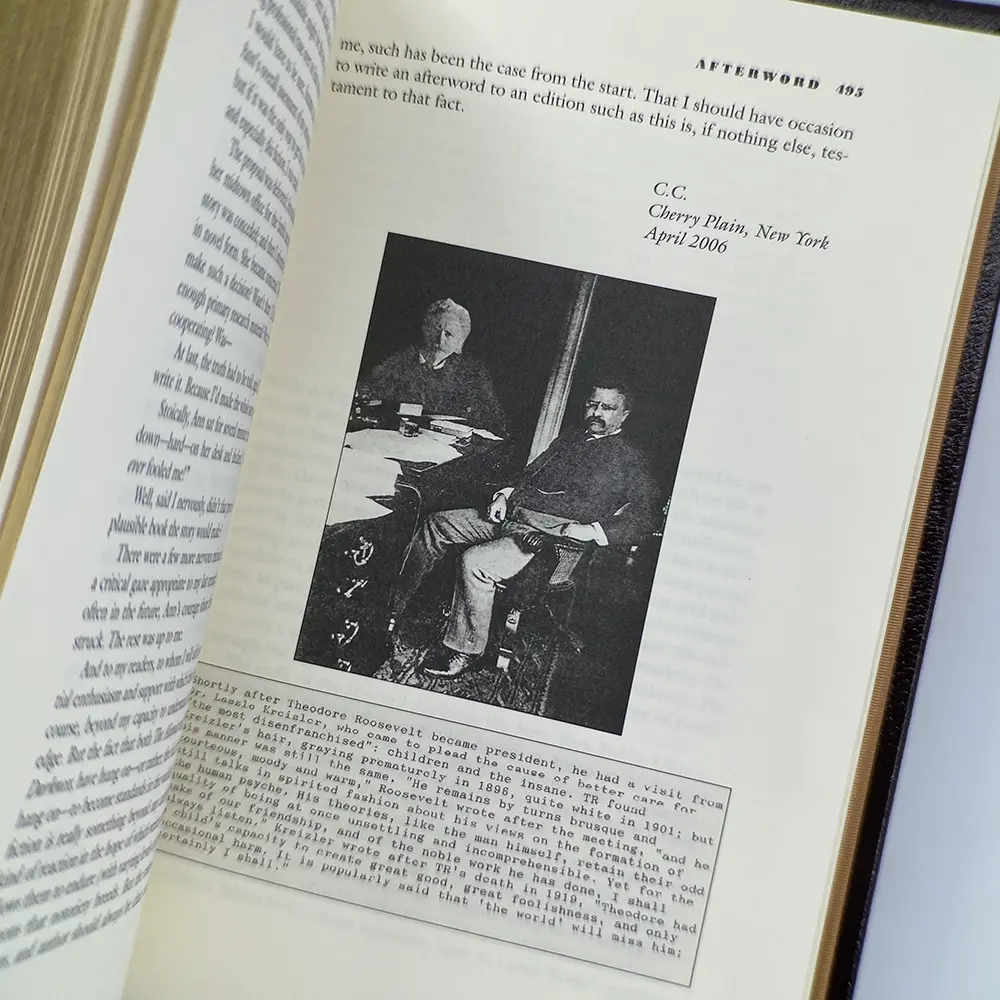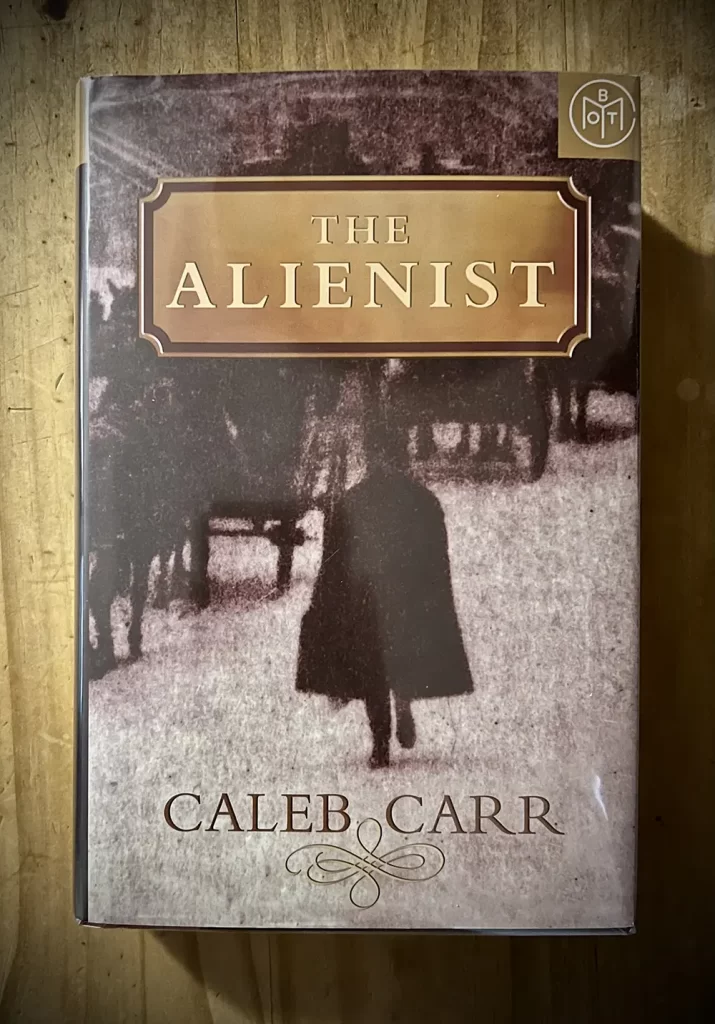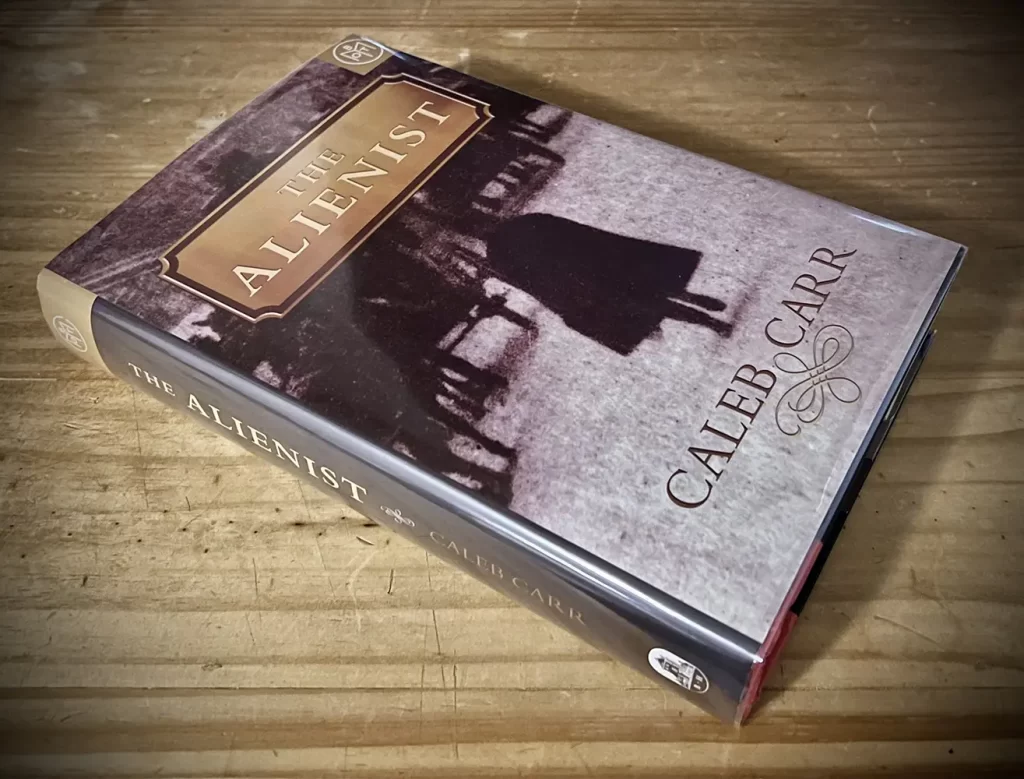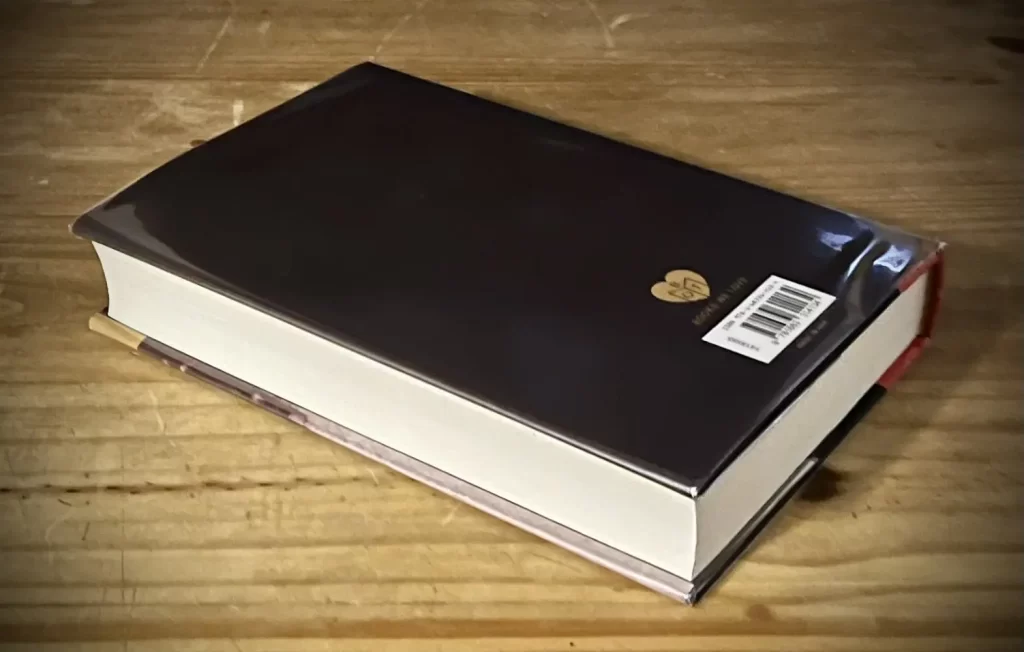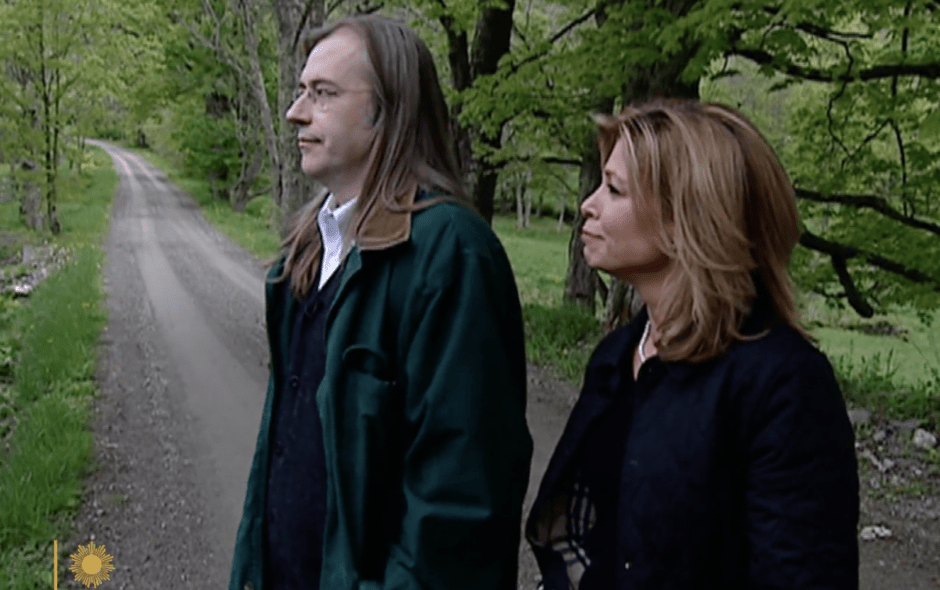We have now reached the penultimate post in our celebration of the 30th anniversary of The Alienist’s publication. In the series so far, we have discussed the novel’s origins (Part One), its release and first/special editions (Part Two), and the early attempts to adapt the novel to the screen, including glimpsing a rare leather-bound copy of Steven Katz’s script (Part Three). In today’s post, we will examine how the success of The Alienist led to the publication of a sequel before exploring the various uncorrected proofs (including a very rare proof), an advanced reader copy, first editions, and one example of a paperback that have been released for the novel over the years.
A sequel is called for
It should come as no surprise that the phenomenal success of The Alienist led to a book deal for a second. Partially inspired by Wilkie Collins who often had multiple characters narrating a single mystery, Caleb Carr revealed in interviews that he had similar plans for alternating narrators in the Alienist novels. Speaking to Crime Time in 1997, he explained that the original idea was for “the narration of each book [to] shift from person to person to person, with each narrator telling the story that was most significant for them. I chose Moore in the first book, as he was the most accessible of the group. He was modern in some ways, and I felt that people would have the least trouble with him.”
For the sequel, Caleb decided to shift to a narrator who was, in some respects, easier to write. He told The Seattle Times in 1997 that “Stevie is a little closer to me personally, in terms of growing up in a lot of different worlds, a lot of different levels of society, in New York.” In response to the Crime Time interviewer suggesting that this shift in narrator involved “cheating,” as Stevie was less educated than Moore, Caleb argued, “I didn’t have Moore’s attitudes myself, so you could say that I had to cheat with him as well. This is really to do with language: the way Stevie views the city is not slumming. He’s been there, he has lived in the lower depths, unlike Moore. To a degree, this reflects my background: I lived in an area where it was a question of slumming for the rich kids when they came to buy drugs and act disgracefully, before going back to their well-upholstered homes.”
In an interview with NewCity in 1997, Caleb revealed that he spent eighteen months “creating the world” for the novel that would become the sequel; and, according to Times Union, he would “disappear into 12-hour writing binges” while cloistered “in a fifth-floor walk-up apartment on the Lower East Side (in a family-owned brownstone).” The end result would be The Angel of Darkness, a 629-page novel that focused on a female serial killer driven to violence by society’s insistence that motherhood was the only “way for her to be a full, complete woman.” Speaking to Salon about why people find maternal violence particularly difficult to grasp, he said: “You want to believe that there’s one relationship in life that’s beyond betrayal—a relationship that’s beyond that kind of hurt—and there isn’t.”
The proofs are distributed
It is unclear when the manuscript that would become The Angel of Darkness was finally turned in to Random House, but a kind visitor to 17th Street, Steve Rogers, recently obtained what is likely to be one of the earliest extant copies: an extremely rare, non-copy-edited manuscript, signed by Caleb Carr, that was sent to a magazine reviewer in early July of 1997 to meet the lead time for their October issue. The manuscript came presented in a red two-piece tray case, and included a protective cover, a letter addressed to the reviewer by Pamela K. Cannon (a senior publicist at Random House), and an information page about the book. This is a truly special find.
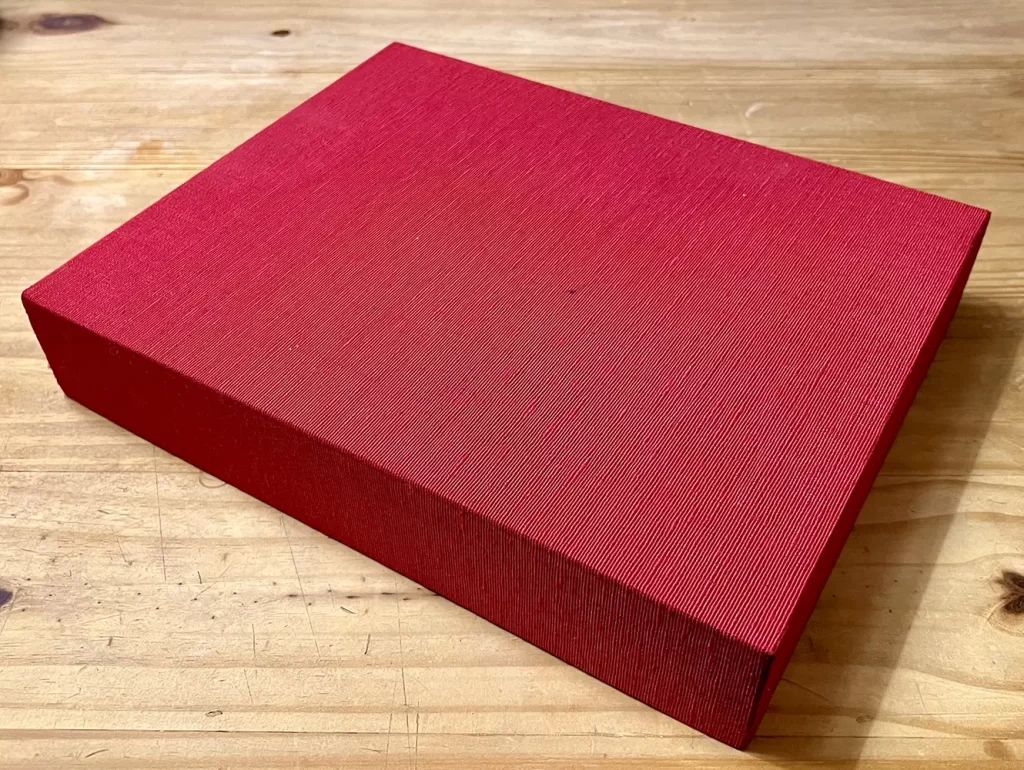
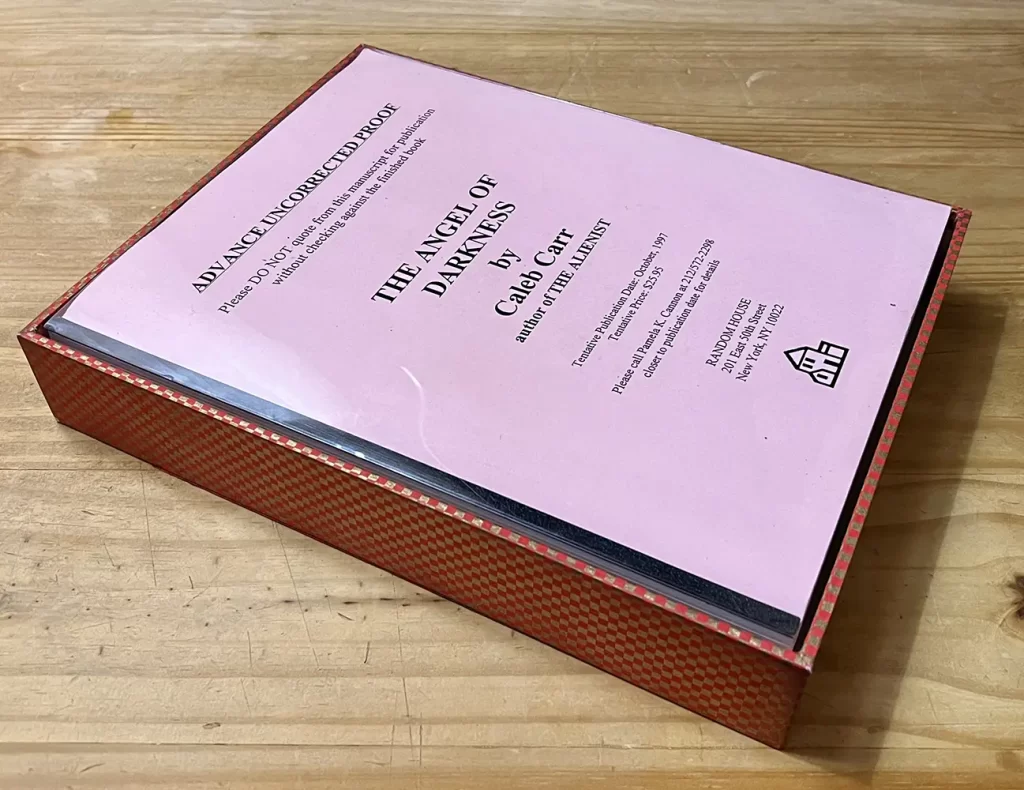

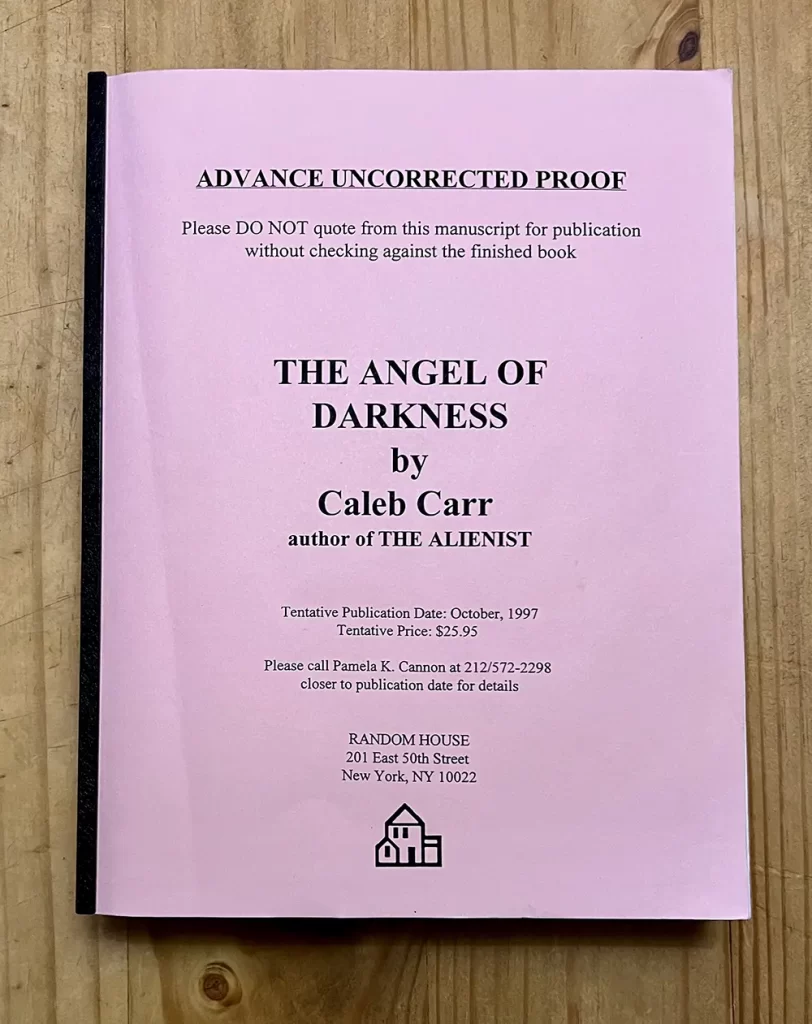
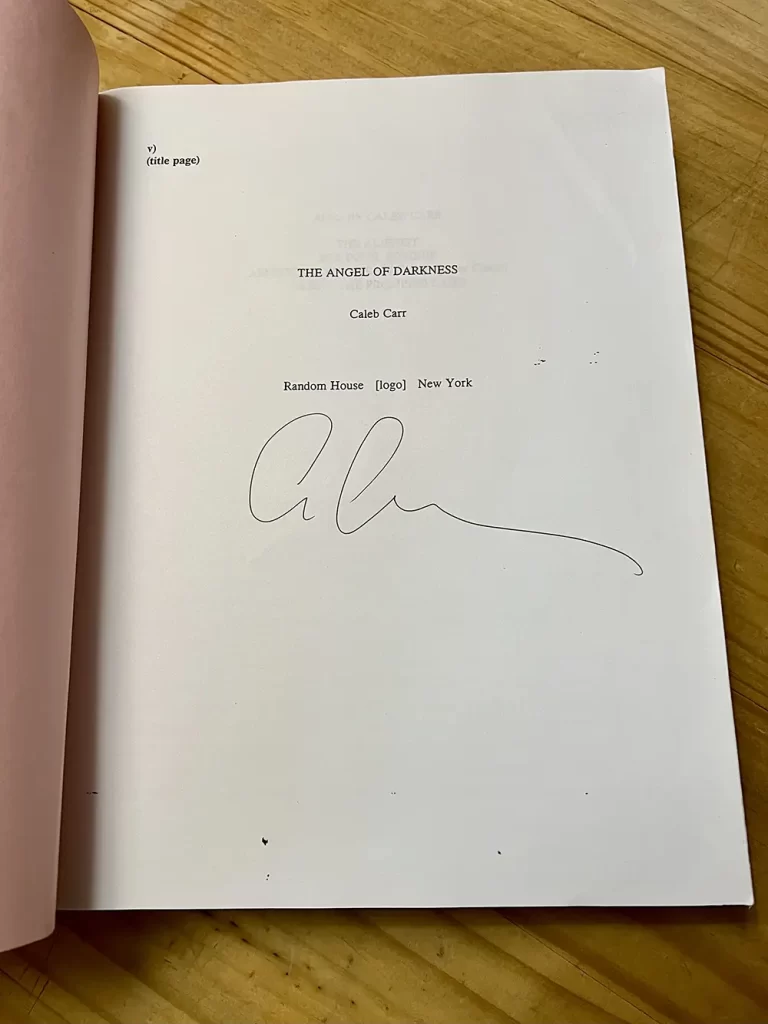
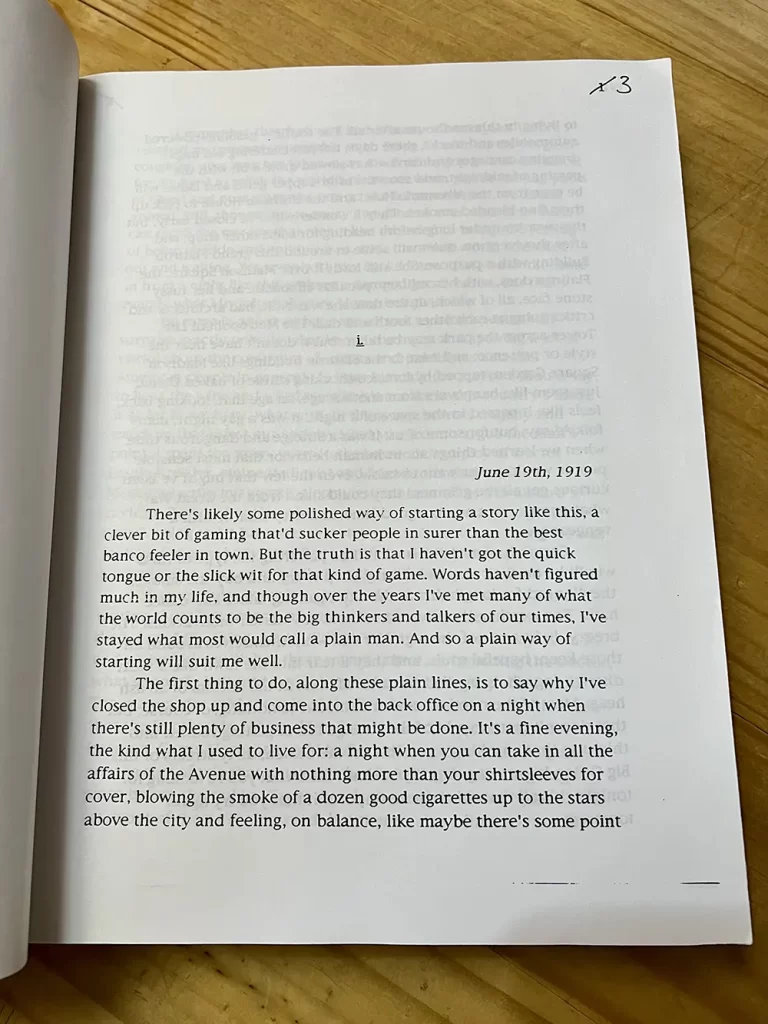
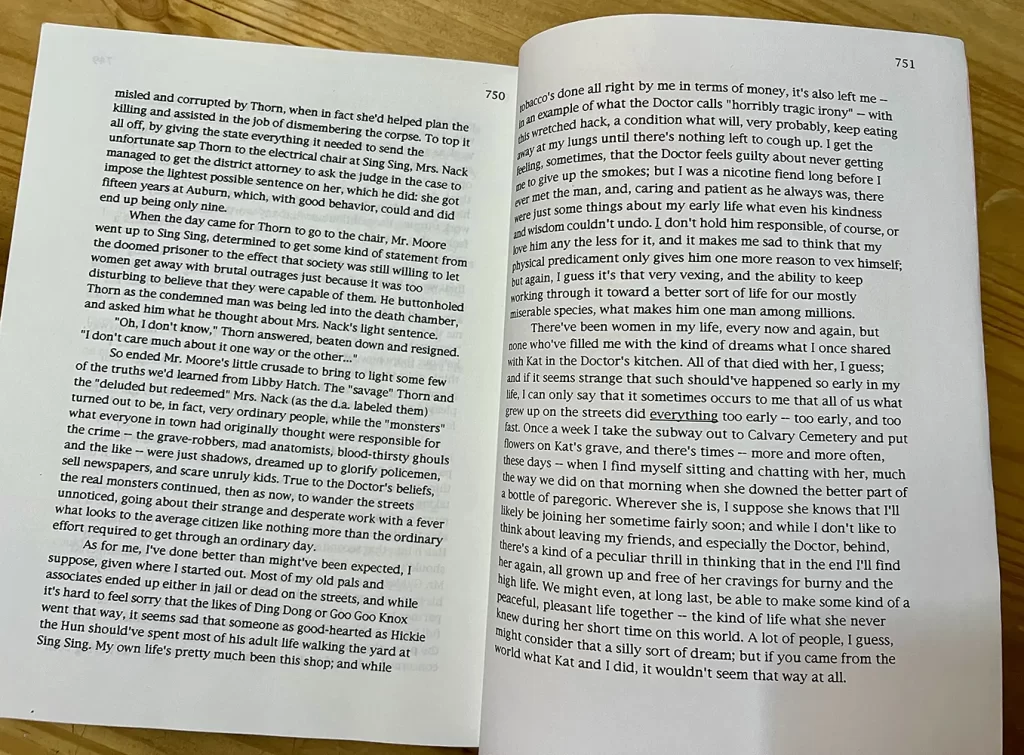
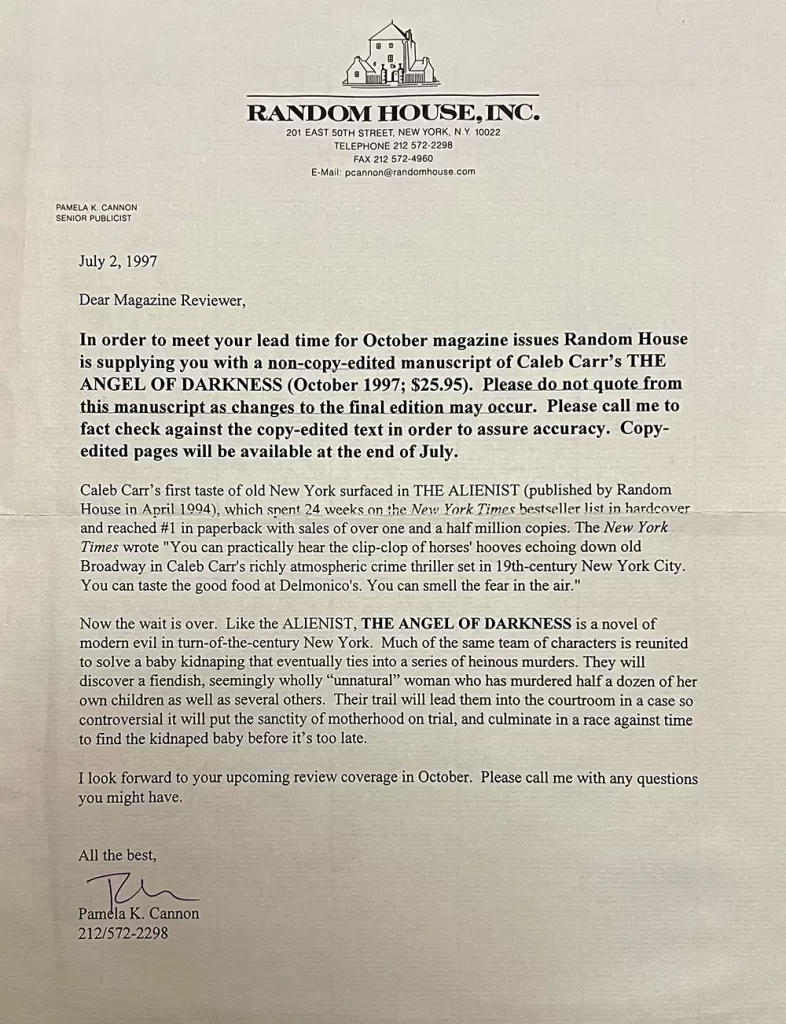
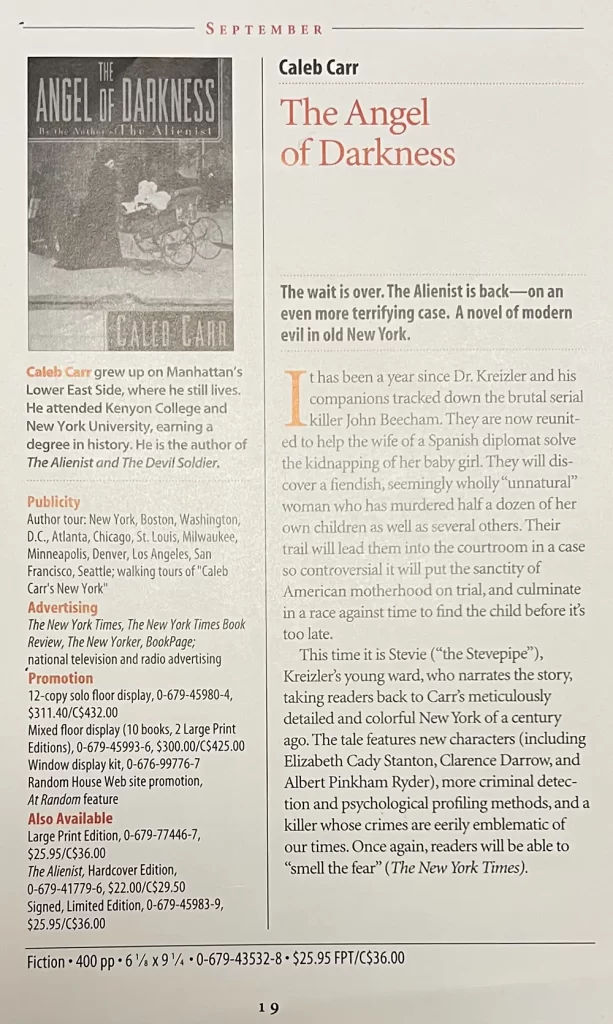
A few weeks later, the novel’s standard uncorrected proofs were distributed to reviewers, critics, and industry professionals. As you can see in Part One, the proof for The Angel of Darkness had the same standard blue and white Random House paperback binding as The Alienist. The copy shown below also came with a letter and information page about the novel that would have accompanied each proof when they were sent out.
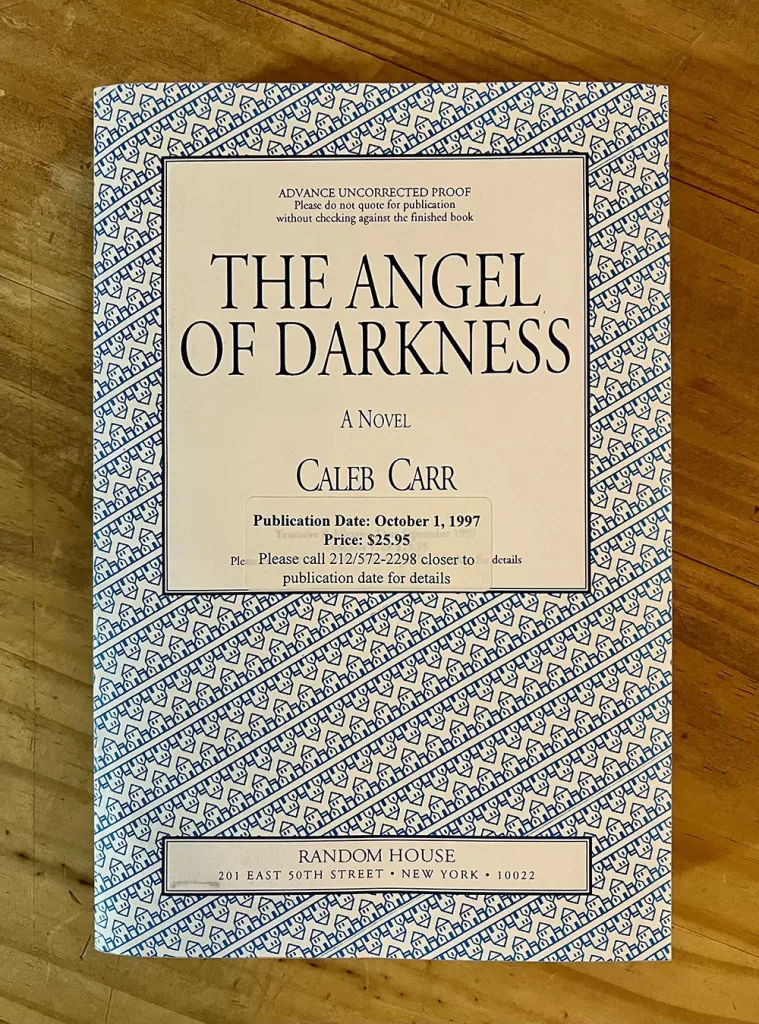
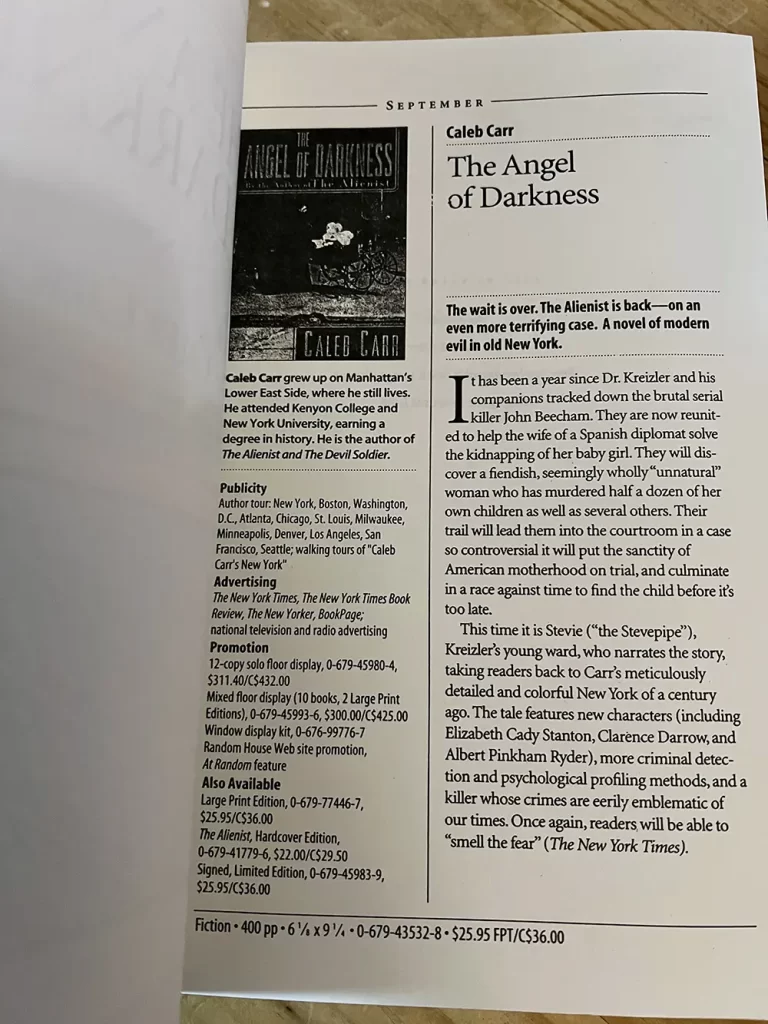
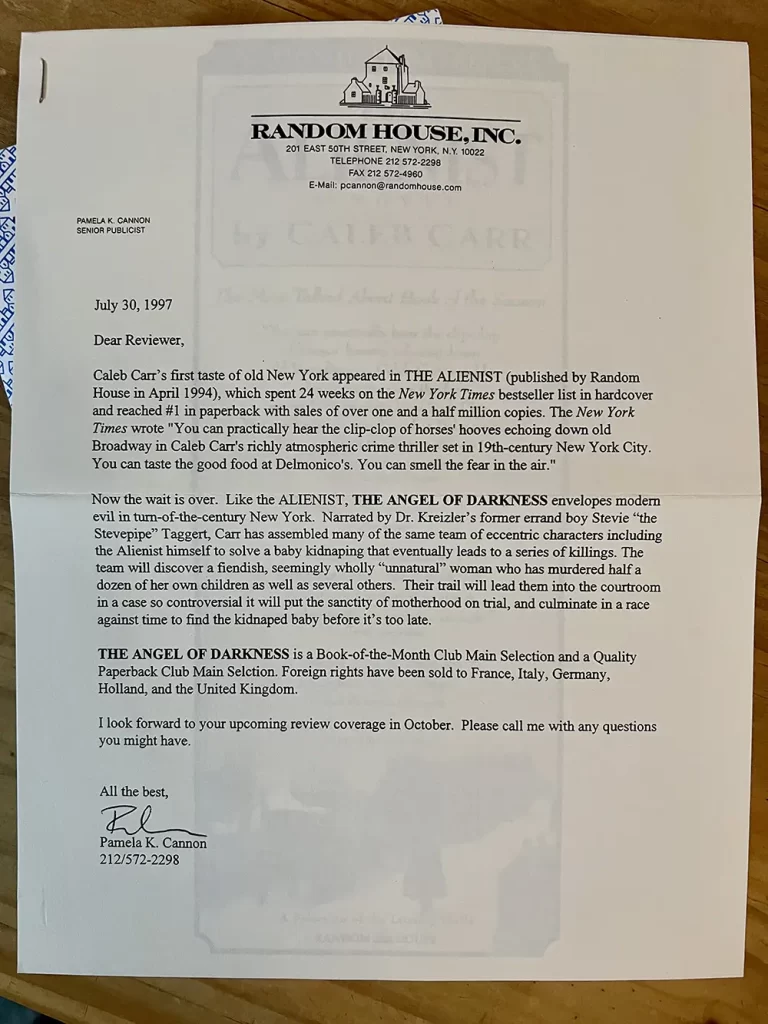
The Angel of Darkness is released
Several months after the uncorrected proofs and advance reader copies were distributed, the highly anticipated sequel was released in September of 1997. Like its predecessor, The Angel of Darkness had its true first edition published by the Franklin Library as part of their Signed First Edition series. As explained in Part Two, these beautiful editions were printed on acid-free paper with gilt edging, were fully leather-bound with 22 karat gold ornamentation, and included a custom illustration. Each edition was limited to 1,500 copies worldwide.
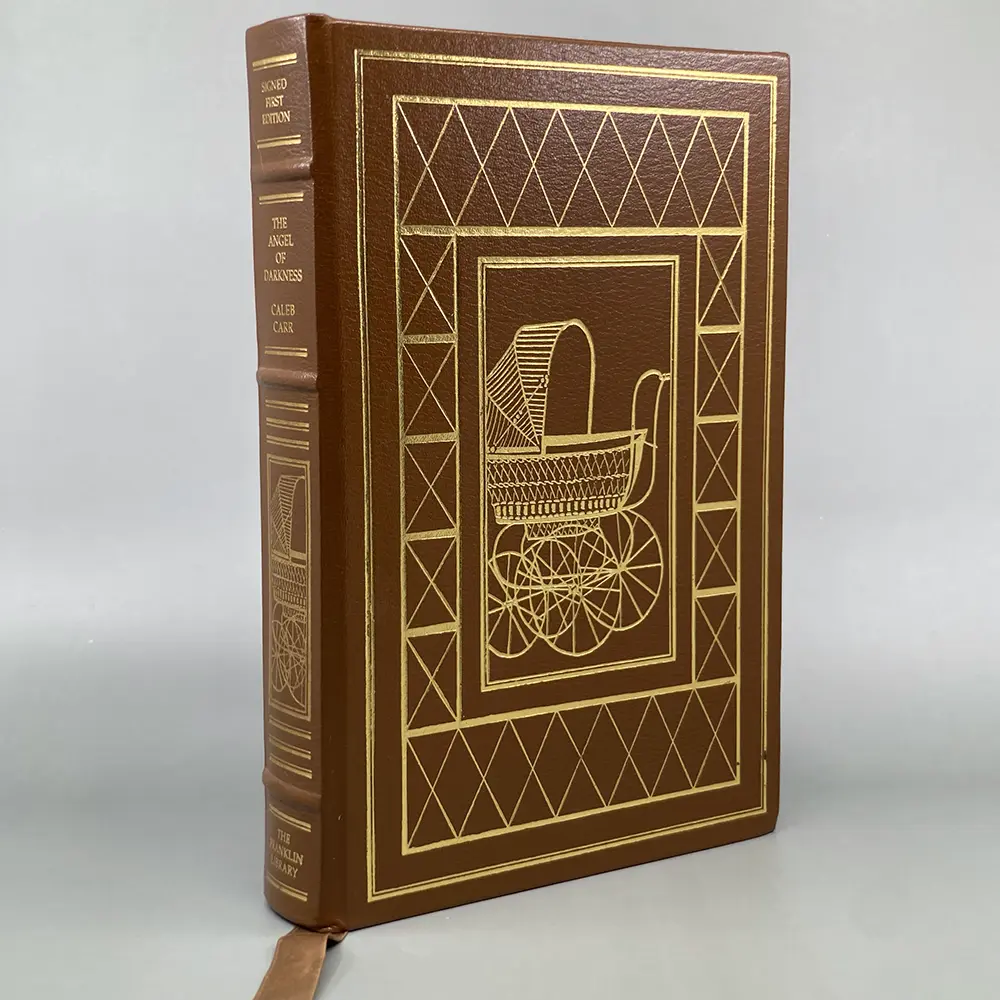
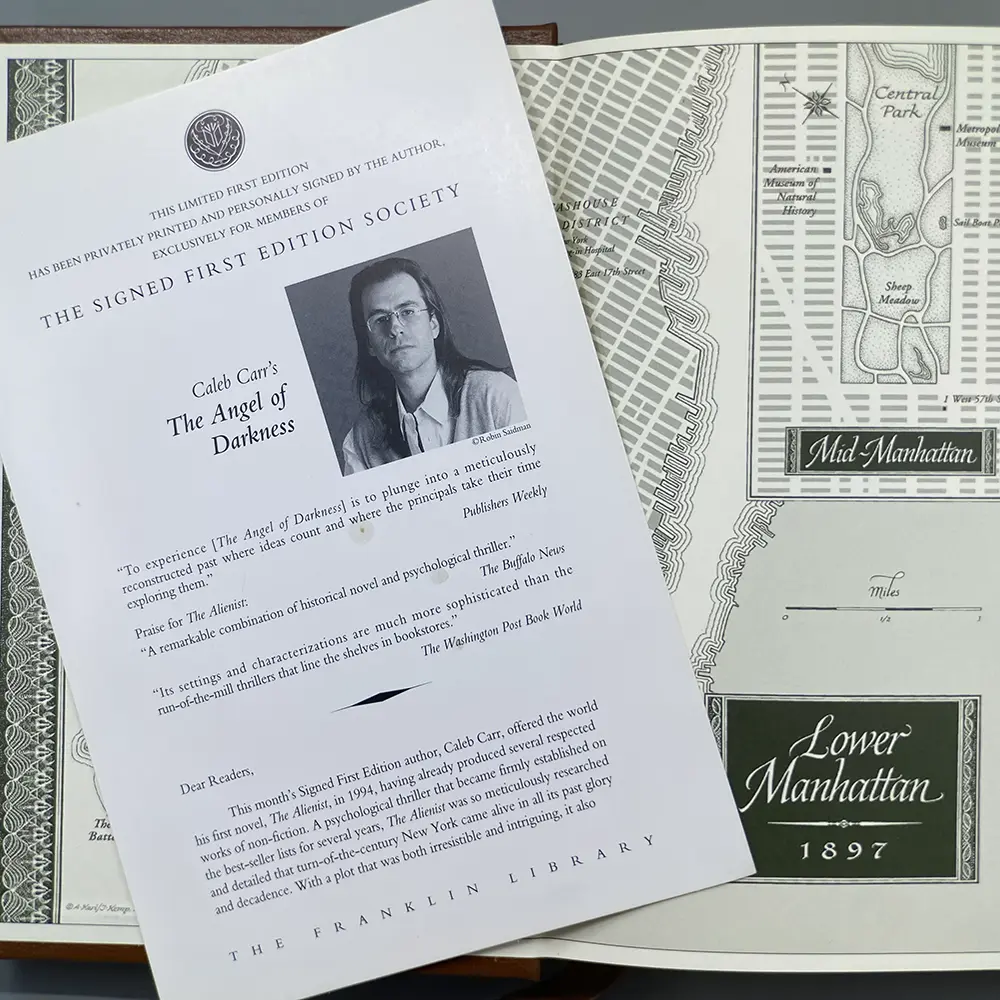
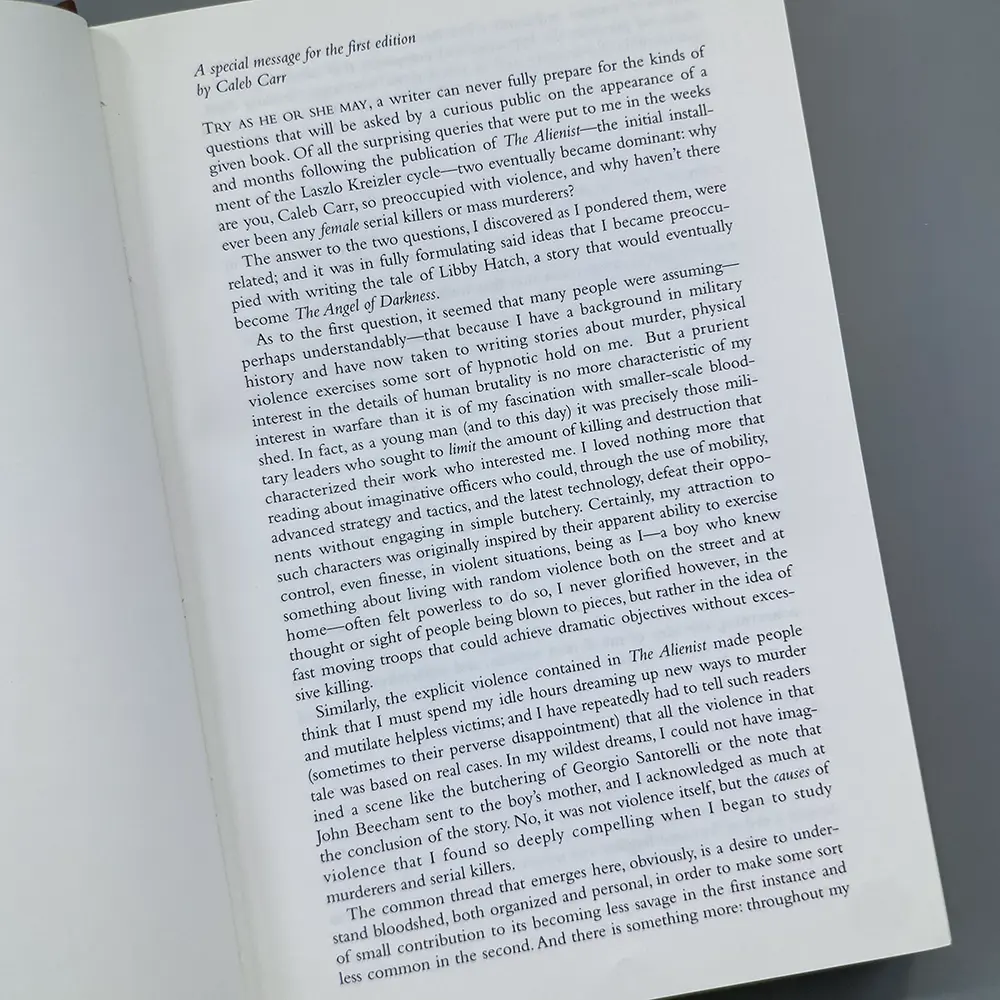
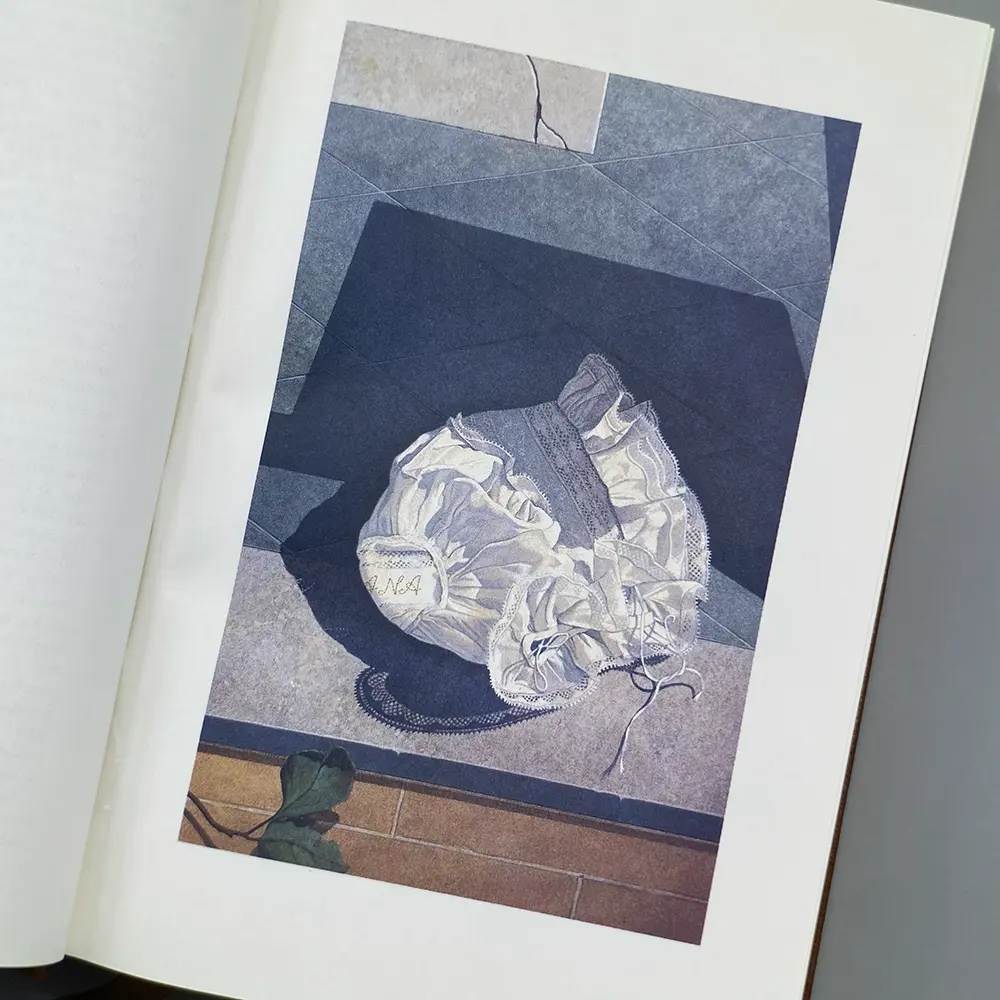
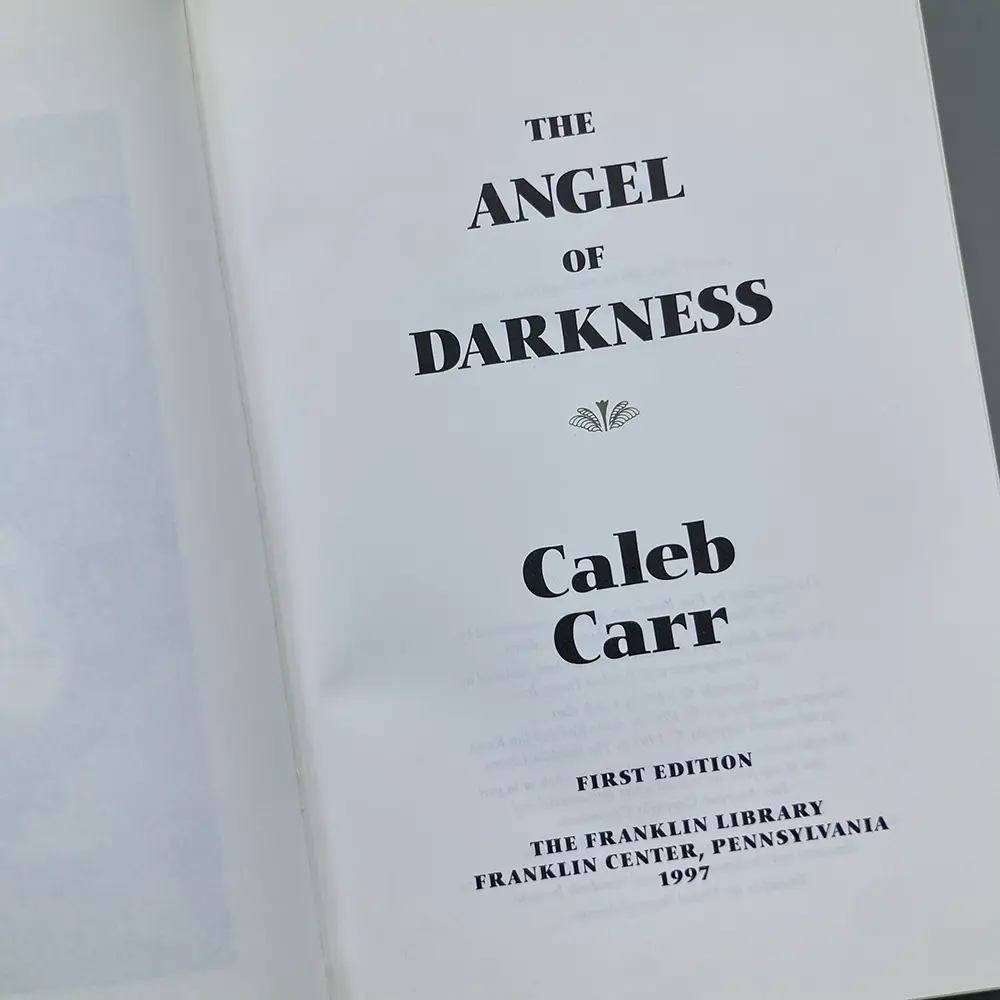
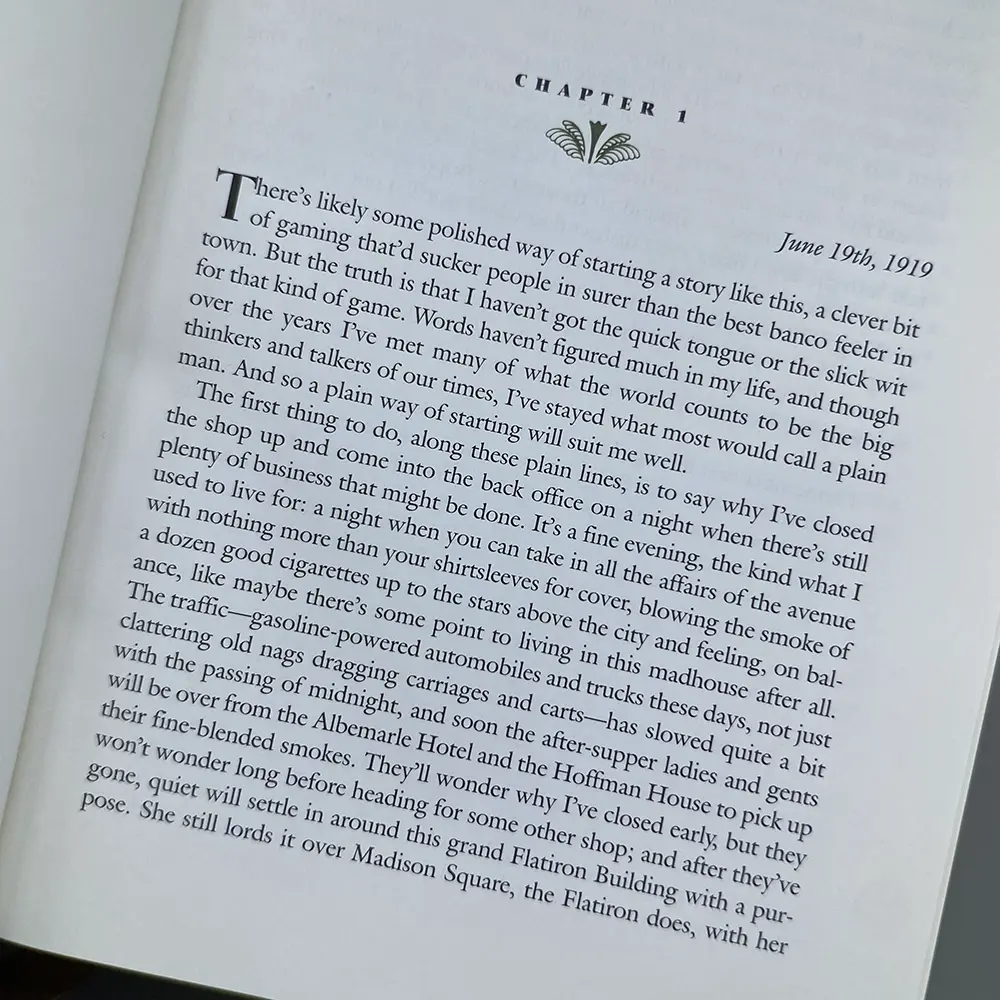
But again, as with The Alienist, it was the Random House first edition that most readers would be familiar with. I have tried to identify the photographer of the black and white photo that was used to illustrate the cover, but as it was not credited anywhere in the book, I was unable to find the source. However, in a blog post from 2008, Ephemeral New York dated the photograph to 1898 and identified it as having been taken on Fifth Avenue and Eighth Street. And for collectors, the first printing of the first edition can be identified by the printer’s key “2 4 6 8 9 7 5 3” and “First Trade Edition” on the copyright page.
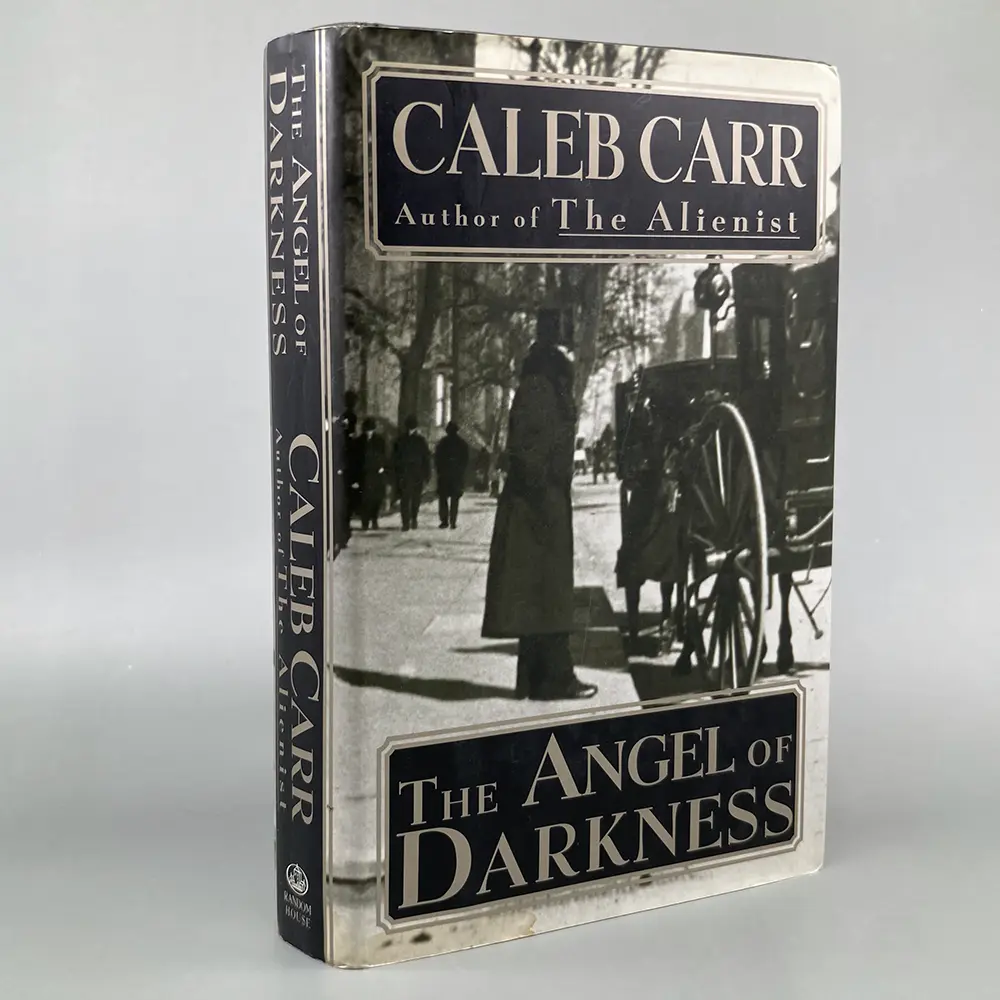
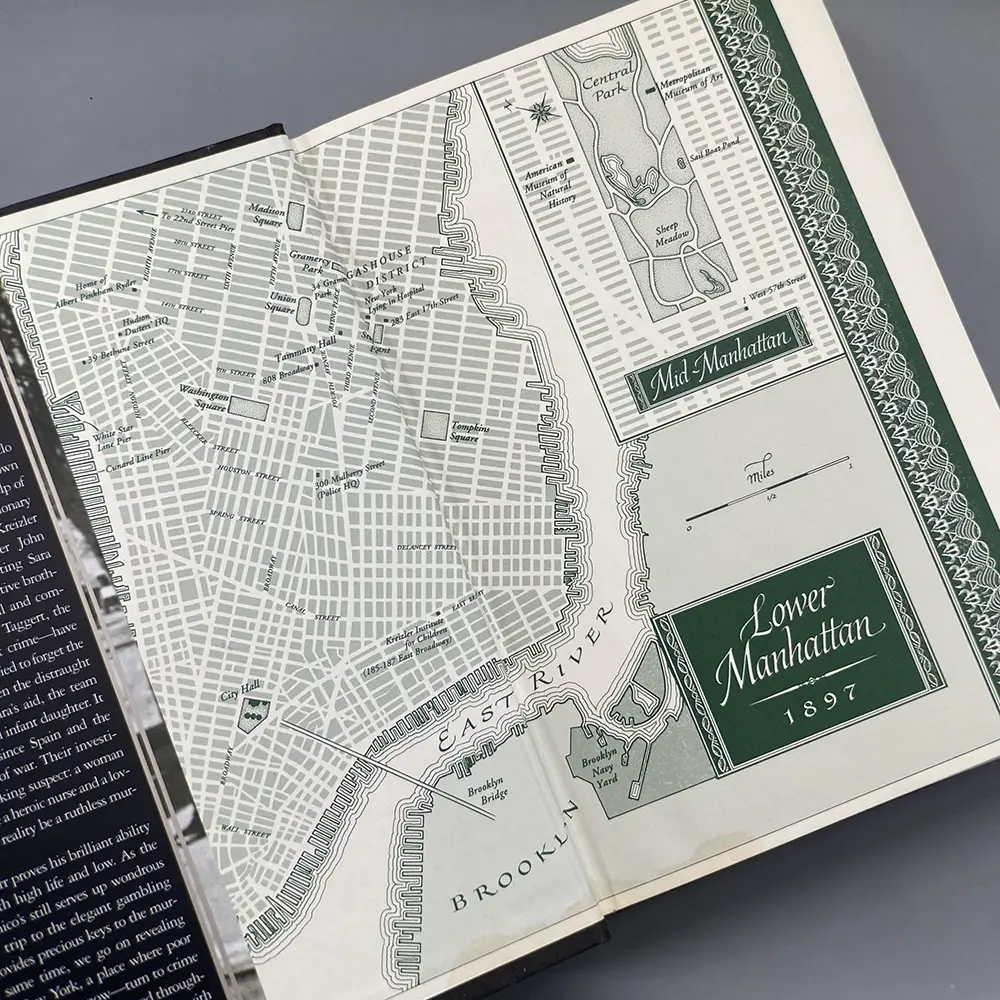
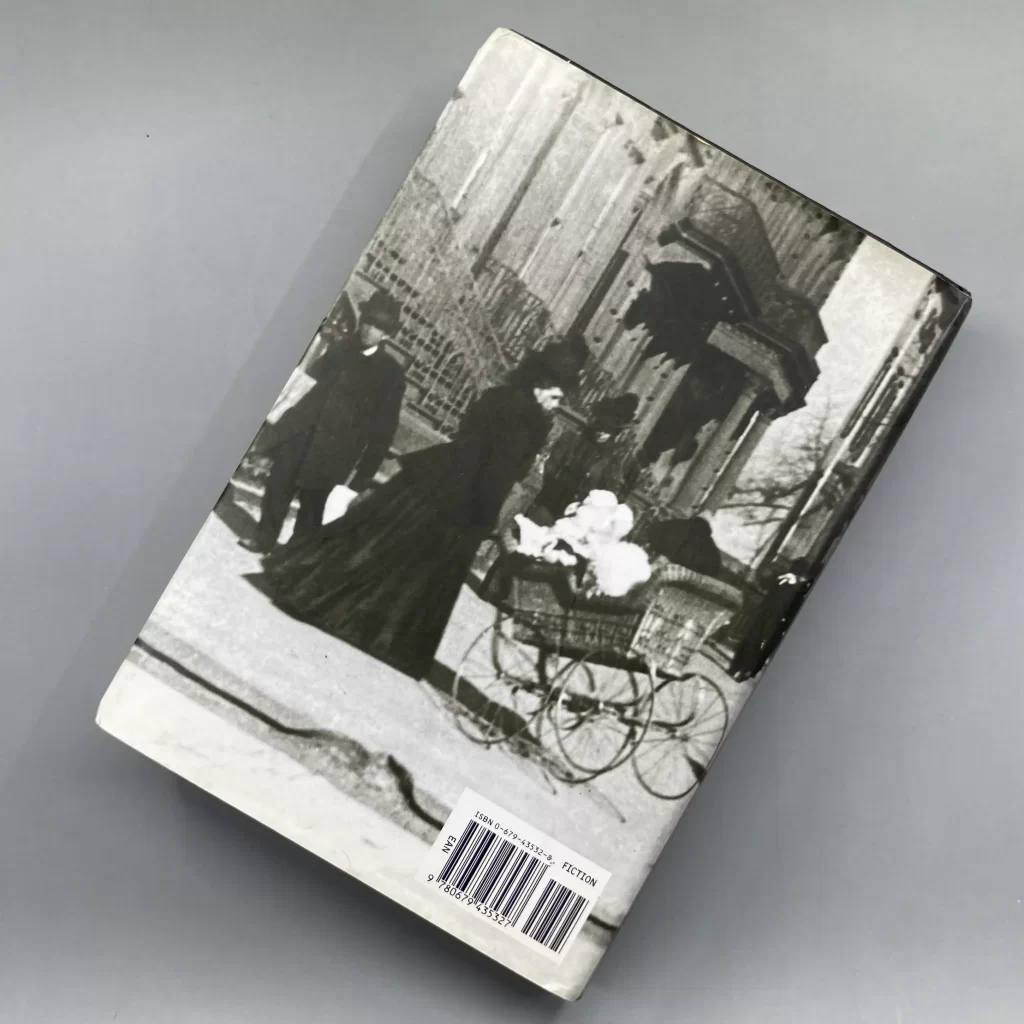
A wonderful feature of both editions is the map that illustrates the endpapers, created for the book by Anita Karl and Jim Kemp. The map plots all the key locations in the novel — at least, those that take place in the New York City portions of the story — and add an extra layer of interest and authenticity to the read (but which, unfortunately, were not included in all of the later paperback editions of the novel).
Reception and other editions
Unsurprisingly, The Angel of Darkness was an instant bestseller. The public’s love of The Alienist led the sequel to debut at number 3 on the Publishers Weekly and Wall Street Journal hardcover bestseller lists, and number 4 on The New York Times bestseller list. Although some of the critical reception of the novel was mixed, with a few reviewers preferring the faster pacing and narration of the original, overall it was extremely well-received and went on to spend 11 months on the hardback and paperback bestseller lists. When it was released, the reviewer for The New York Times wrote:
“Sequels usually don’t work, but in The Angel of Darkness, Caleb Carr has written at least as winning a historical thriller as his best seller The Alienist. Once again, he has created a turn-of-the-century New York City that feels as authentic as a fading tintype… Best of all, the theme of The Angel of Darkness is both historically accurate and contemporary, concerning as it does the social pressure on women to be mothers and what happens to their psyches when they lack the instinct to nurture.”
On a personal note, The Angel of Darkness happens to be my favorite of the two novels (though I obviously love The Alienist as well), and the most prized edition of any of Caleb’s work that I possess is a custom-bound leather copy with gilt edging, marbled endpapers, and a slip-case that was given to me as a gift many years ago. I debated sharing these photos as they are not of an official or publicly available copy, but given that celebration is the theme of these blogs, I decided to include them anyway.
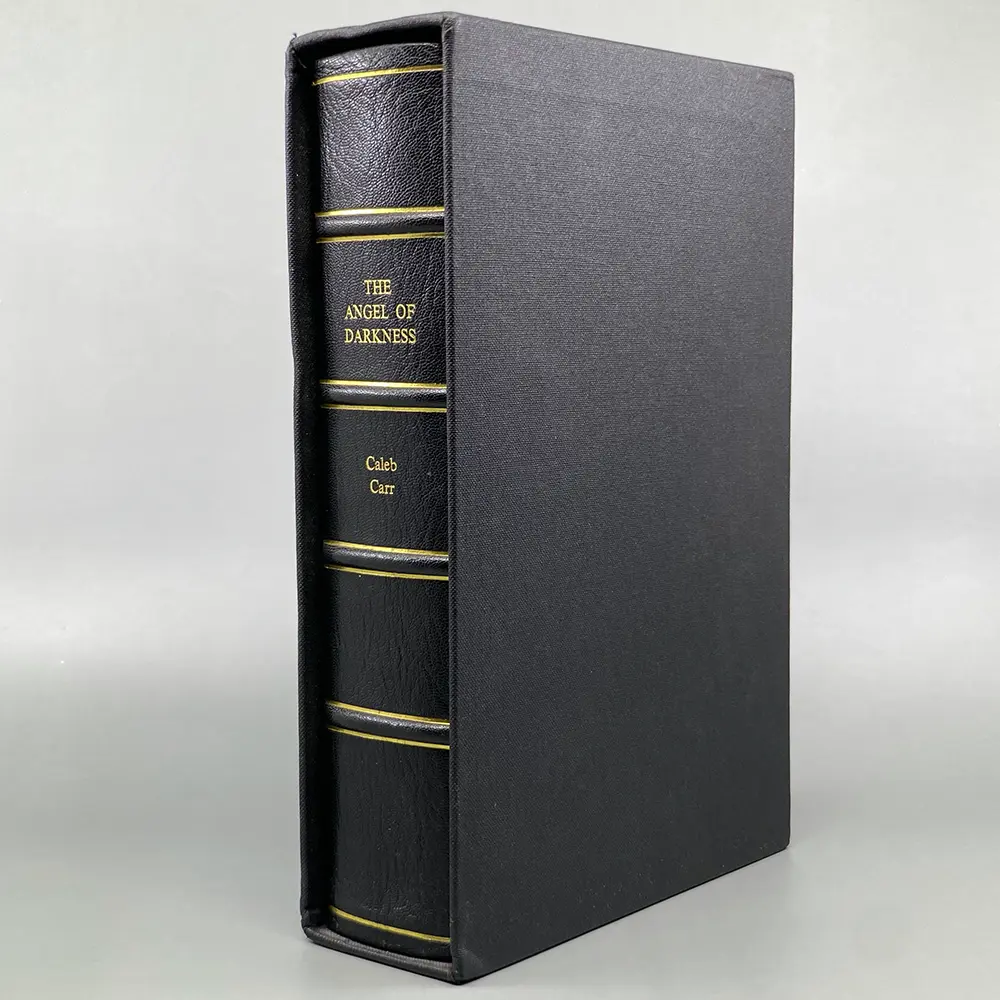

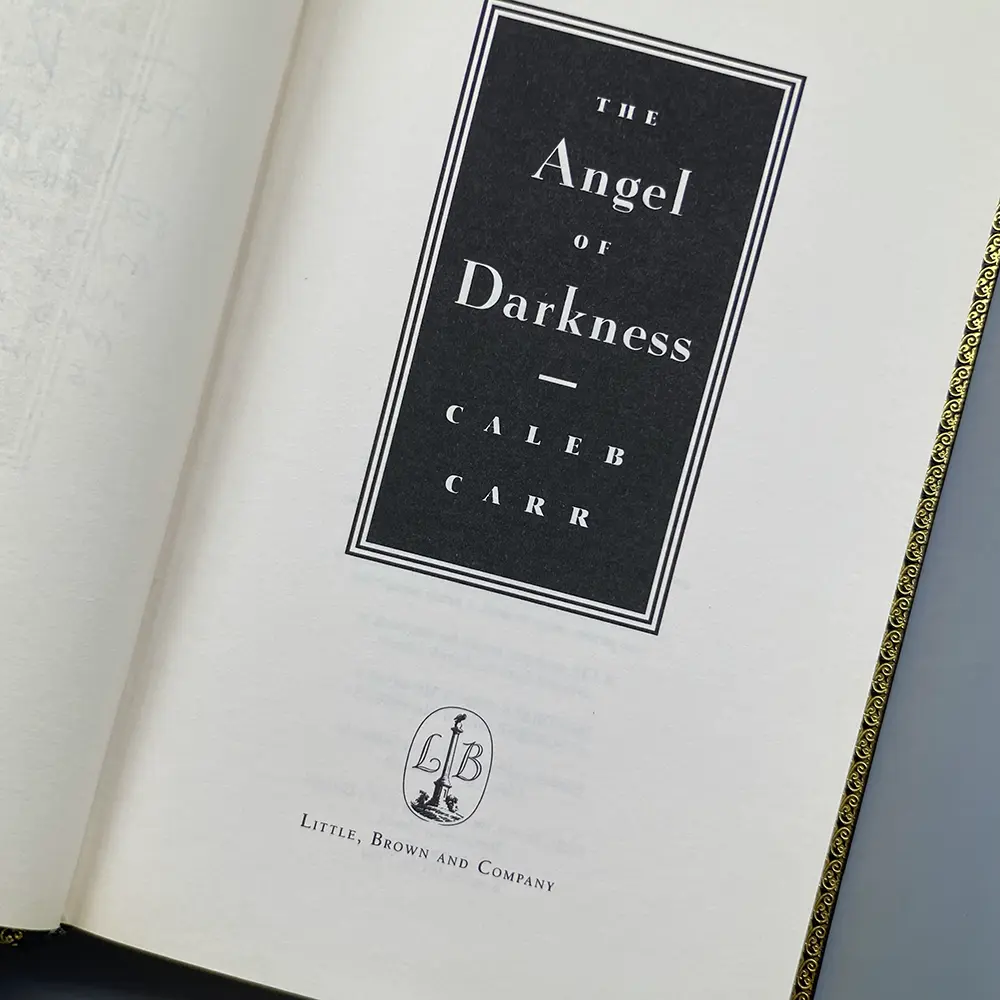
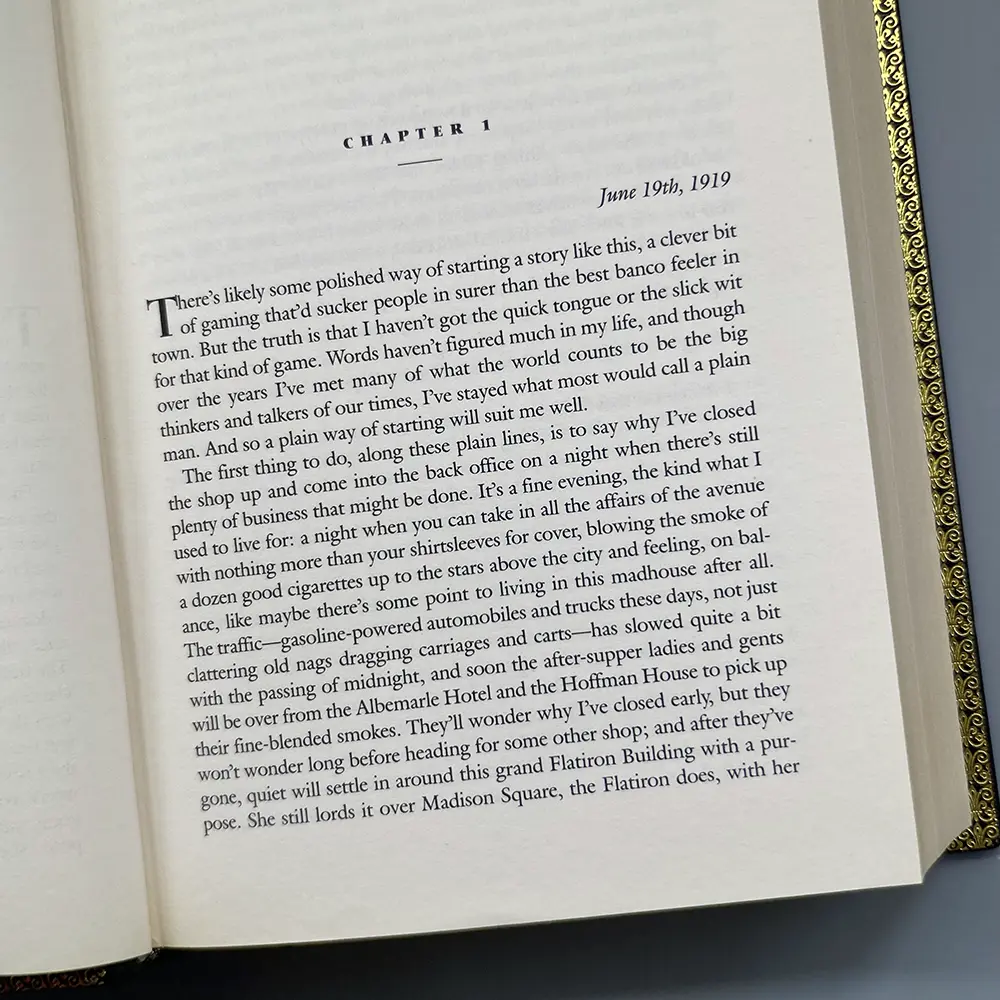
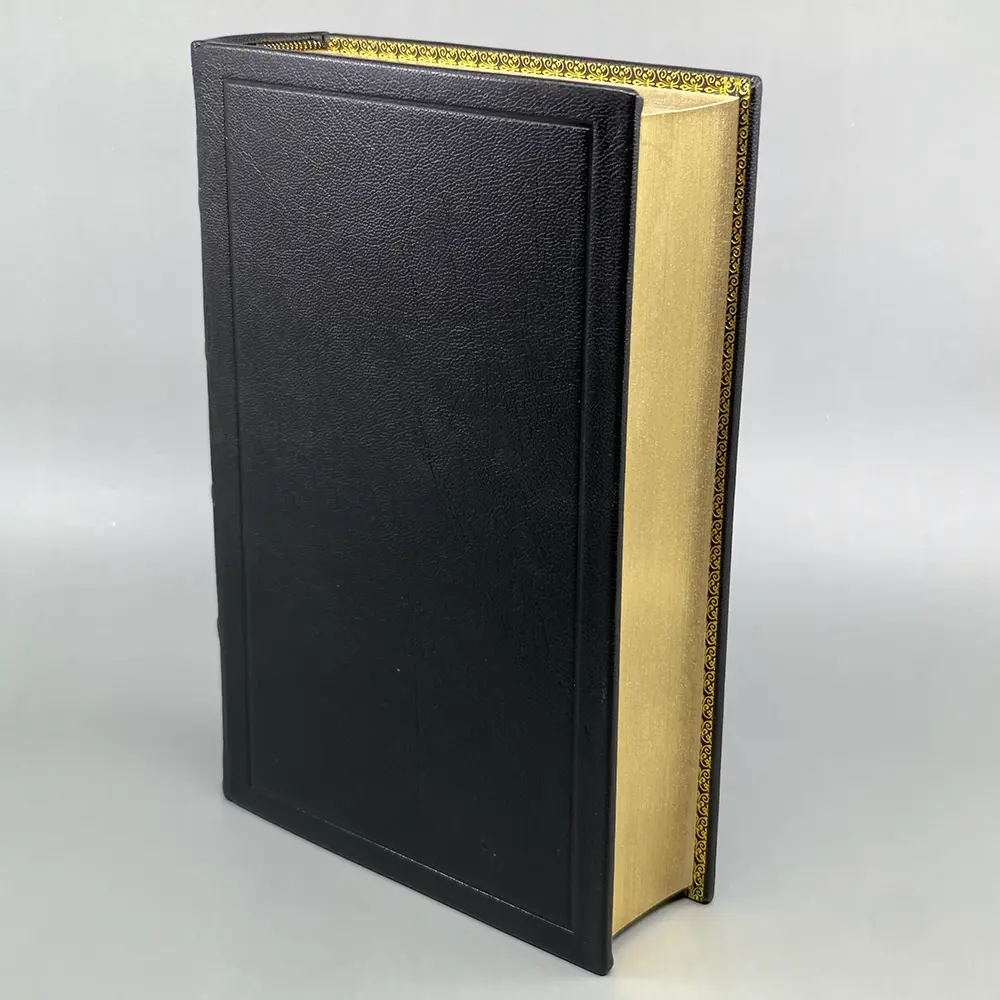
As you might be able to tell, this custom-bound copy was created from the novel’s UK first edition published by Little, Brown and Company. Interestingly, unlike The Alienist which had different UK and US covers, the original UK first edition of the novel had the same cover design as Random House. The primary differences between the two editions is the color of the cover’s photograph (the UK edition has a pale green hue) and minor changes to the title and author text placement.
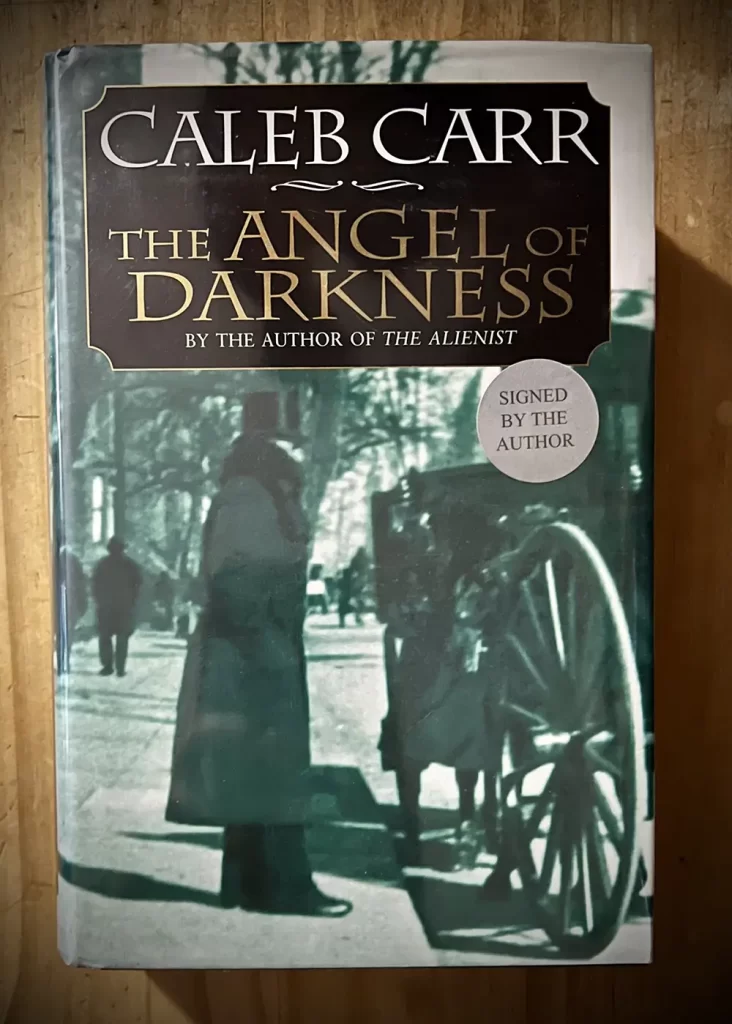
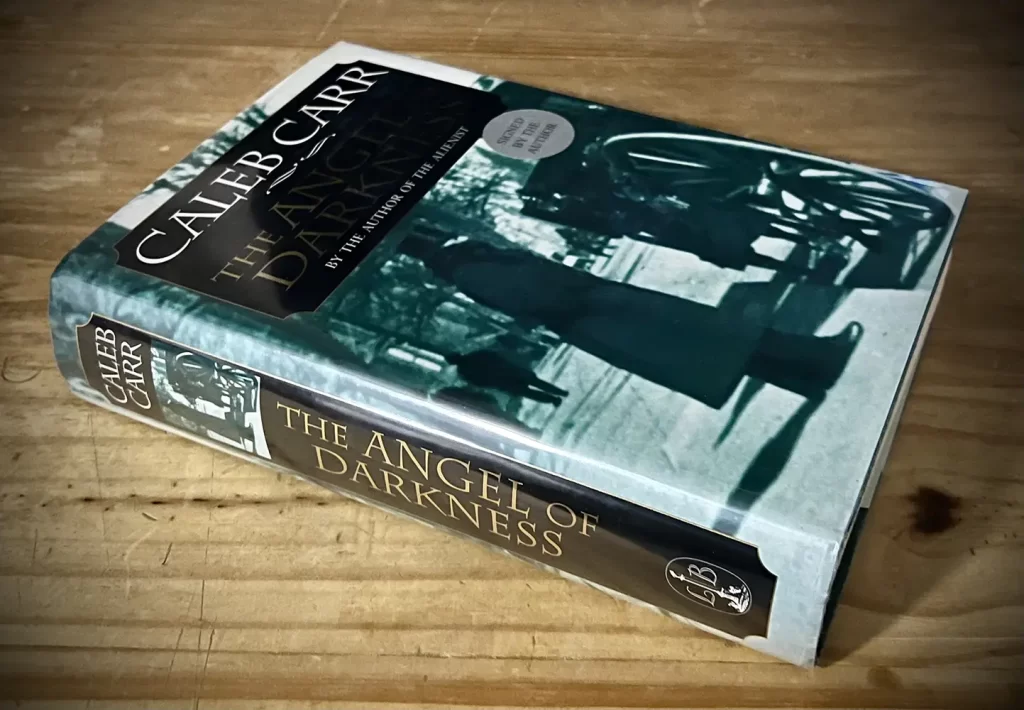
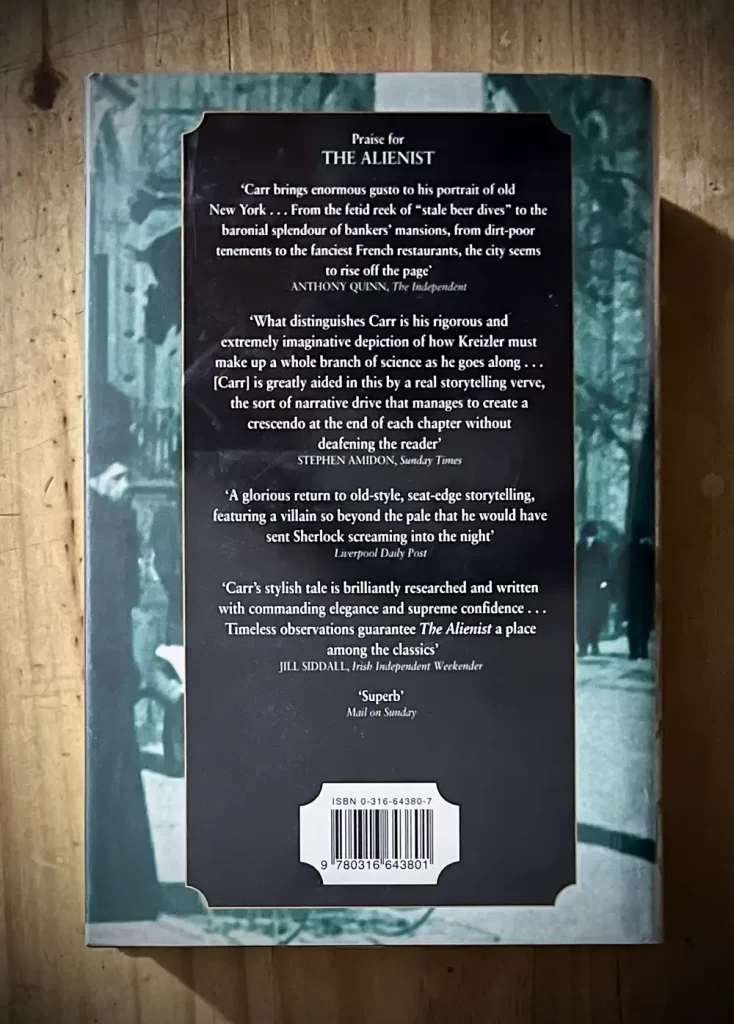
In addition to the UK and other international editions, the sequel’s success led to numerous paperback editions over the years as well. Unlike The Alienist, the novel never received any special anniversary editions, but most paperbacks have continued to use the original cover photograph in varying designs. The following is an example trade paperback released by Random House in 2018 to coincide with the TV series release.
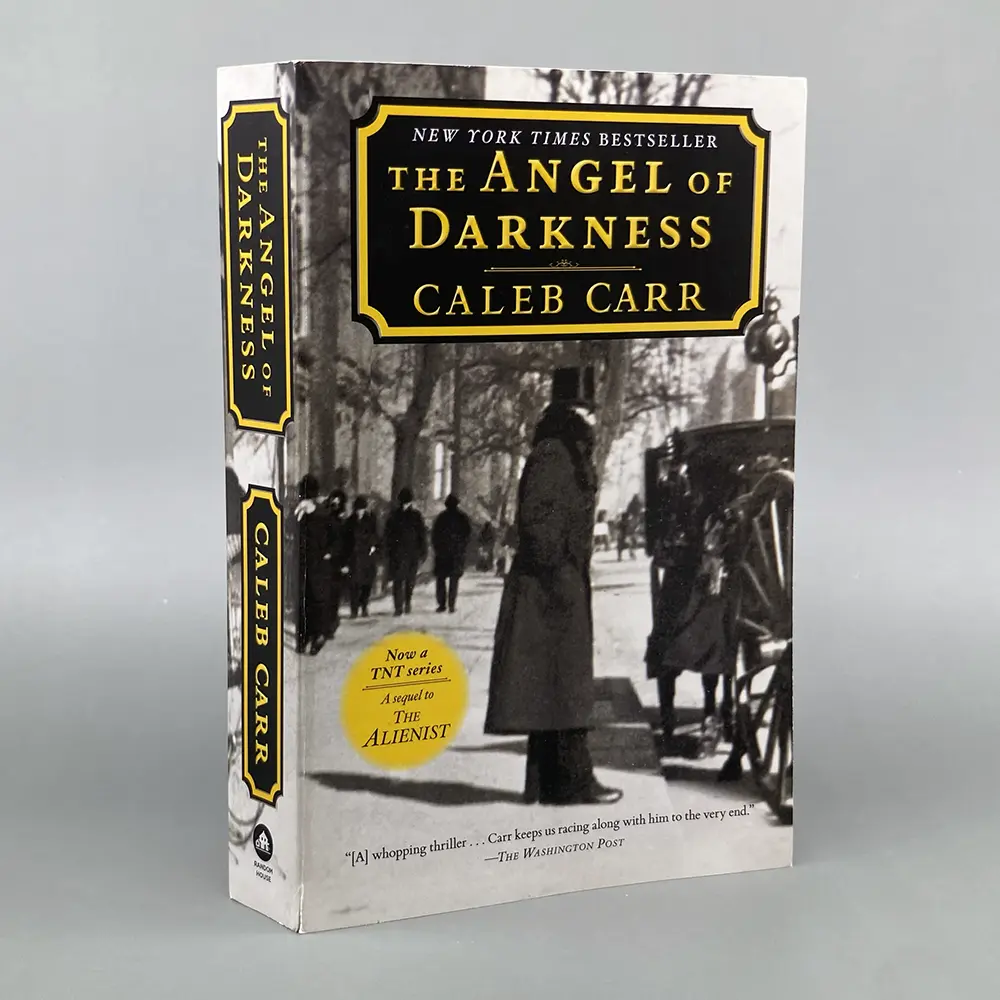
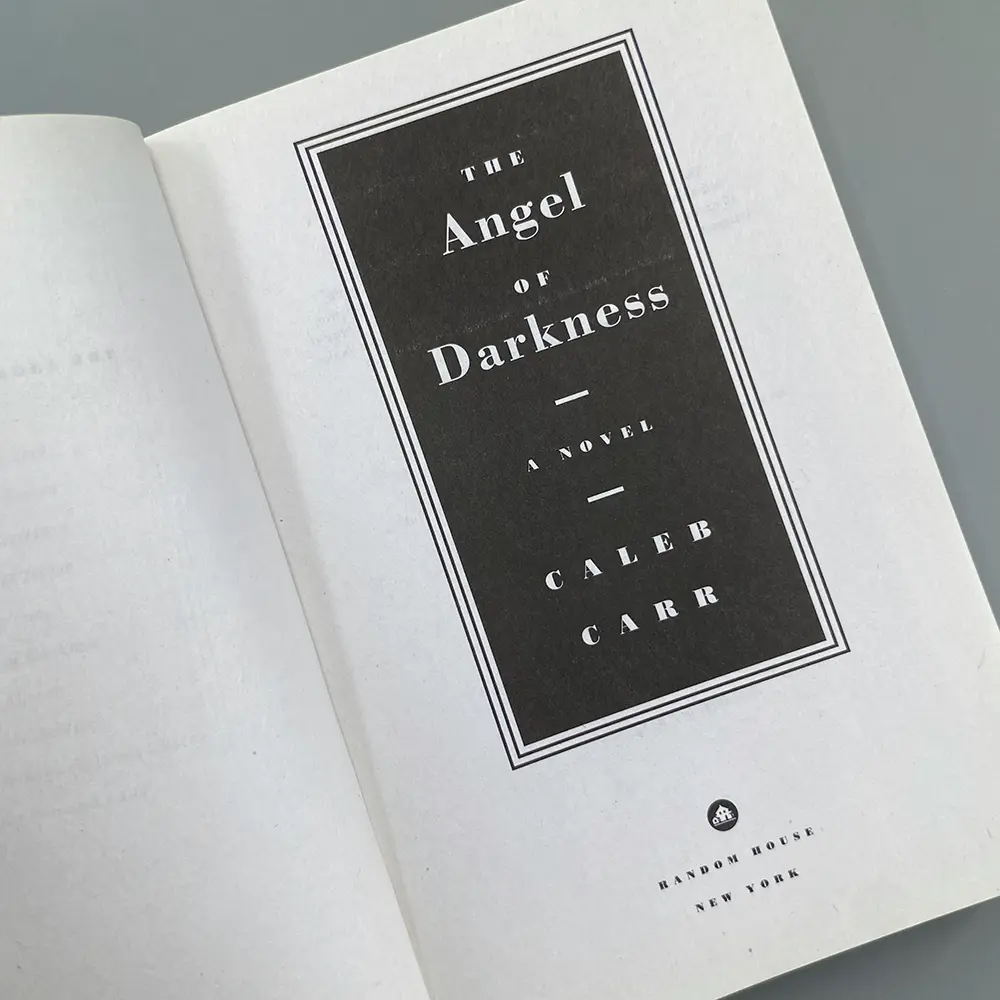
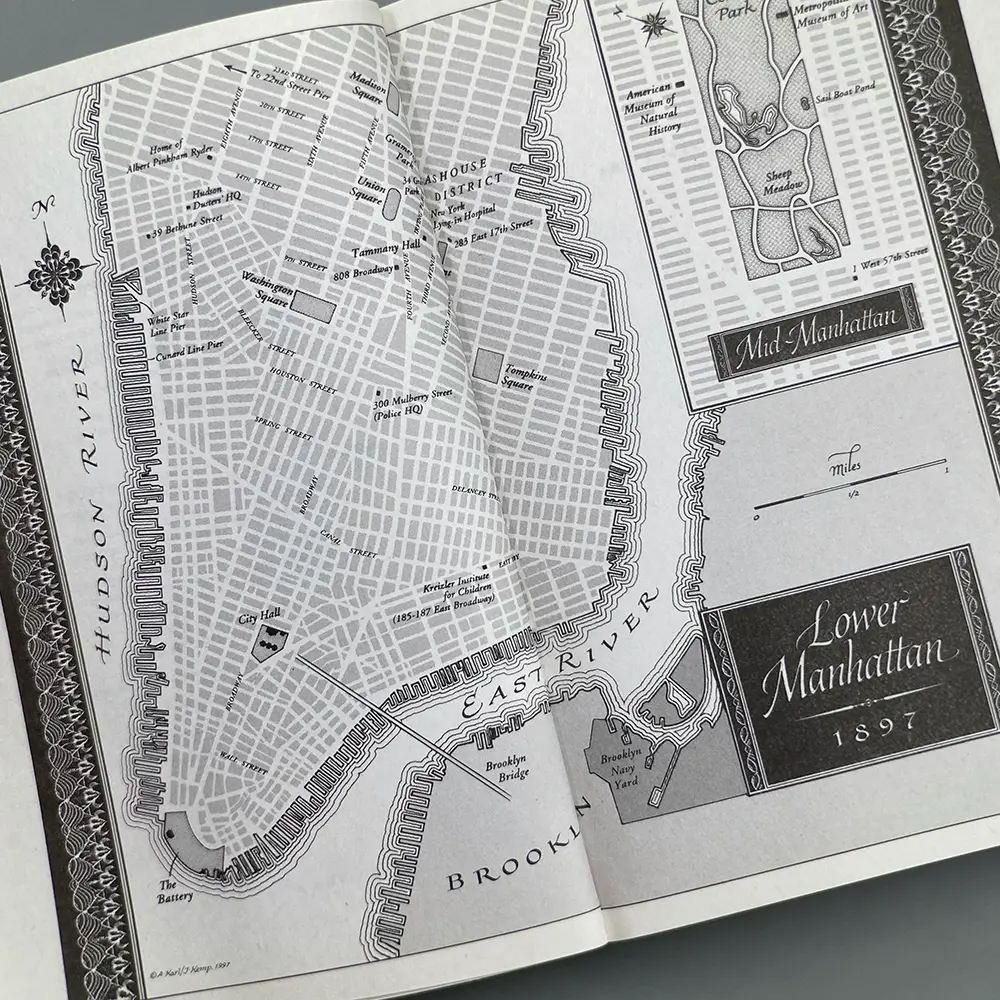
And that is all for our exploration of the publication history for The Angel of Darkness. In the final post of the 30th anniversary series, we will examine some of the international editions for both The Alienist and The Angel of Darkness, and discuss the enduring legacy of the books. You can continue reading here.

